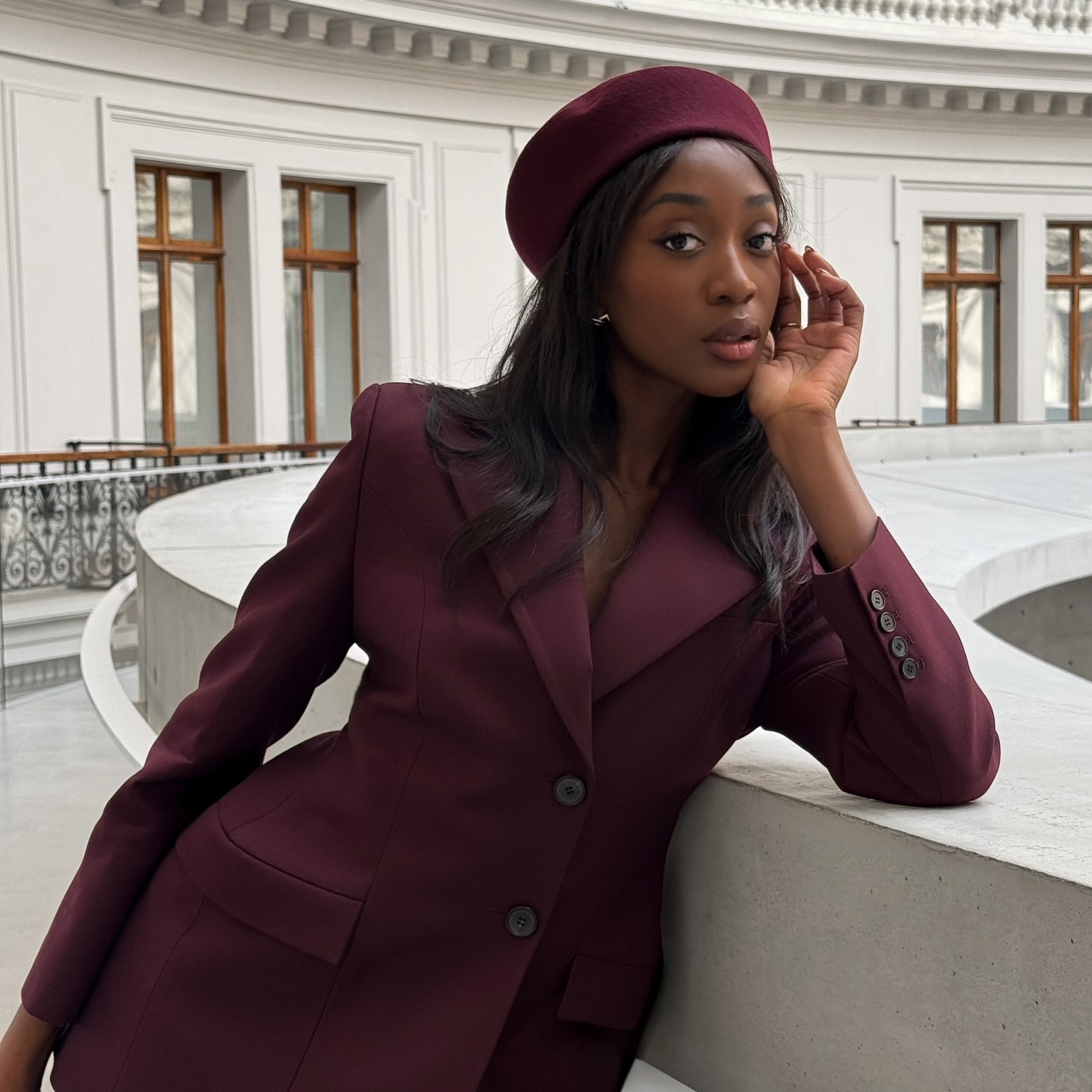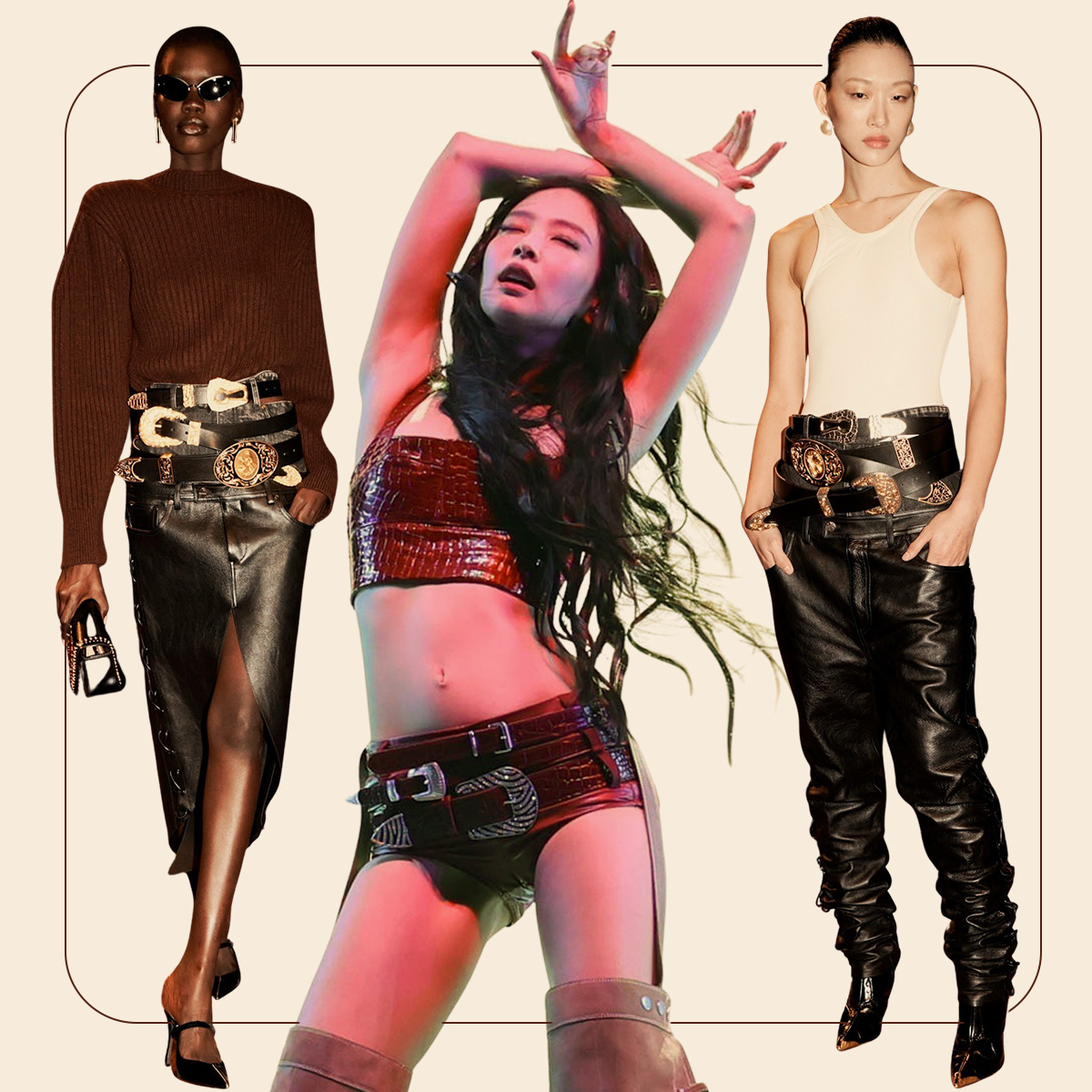3 Designers Everyone's Paying Close Attention to Right Now
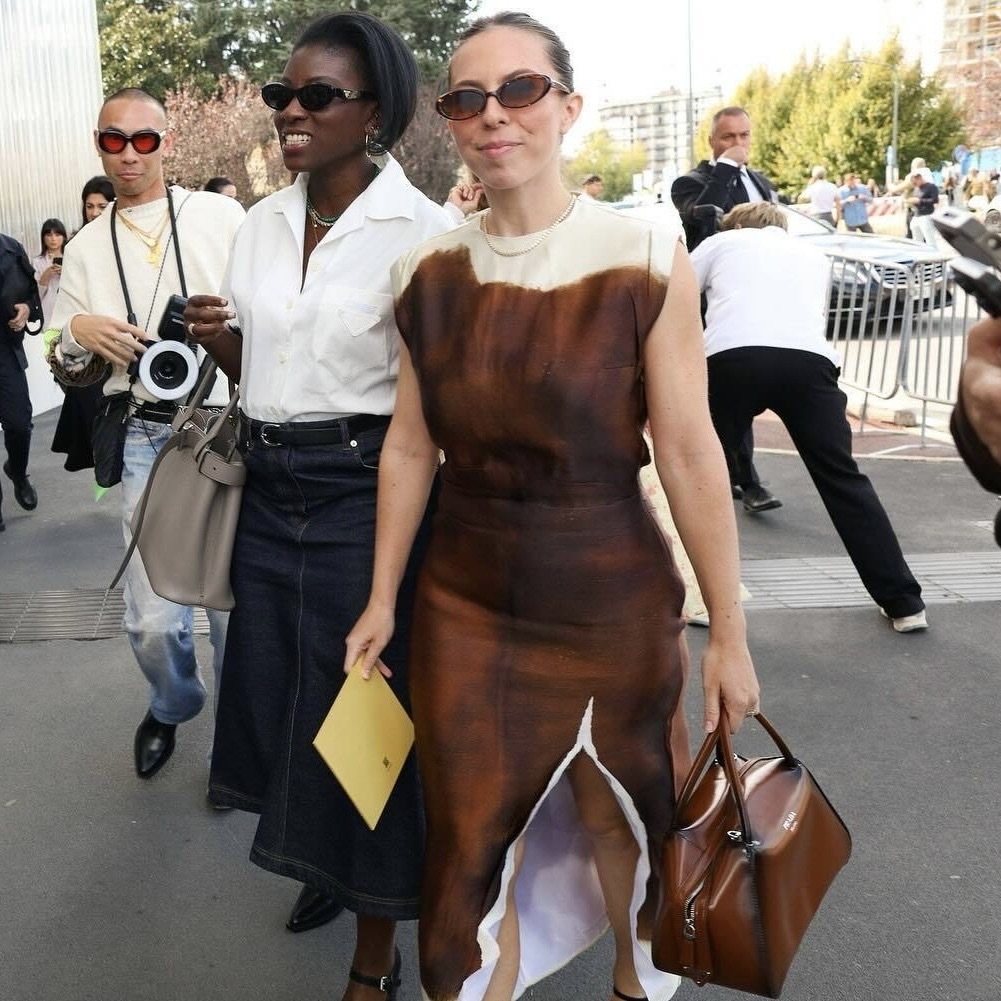
Who are these designers and why is everyone paying attention to them? These three designers we speak of—Marina Afonina of Albus Lumen, Brandon Maxwell, and Michael and Nicole of Colovos—are finalists in the International Woolmark Prize, a competition dating back earlier than any other designer prize still going on today that focuses on emerging talent and their ability to revolutionize wool in their collections while also promising a commitment to sustainable practices. To let you in on just how major this award is, Yves Saint Laurent, Karl Lagerfeld, Giorgio Armani, and Ralph Lauren are among some of the first winners. Like I said… major.
Here's how it works—the International Woolmark Prize selects finalists from over 300 applicants from over 46 different countries. Once selected, each designer is to design a collection that uses unique Australian Merino wool fabrication in both process and development, and the winner receives funds for their submitted collections to be sold and commercialized in some of the industry's largest retailers. This year, the finalists' collections are taking the use of wool to the next level, including everything from wool-comprised water-resistant outerwear to wool denim.
Today, we have the honor of hearing from three of a handful of this year's 2019 International Woolmark Prize finalists as we interviewed them on what winning this prize would mean to them as an emerging designer, the specifics on how they are revolutionizing wool, and what we can expect to see from their collection on February 16, the official day of the prize.
Albus Lumen
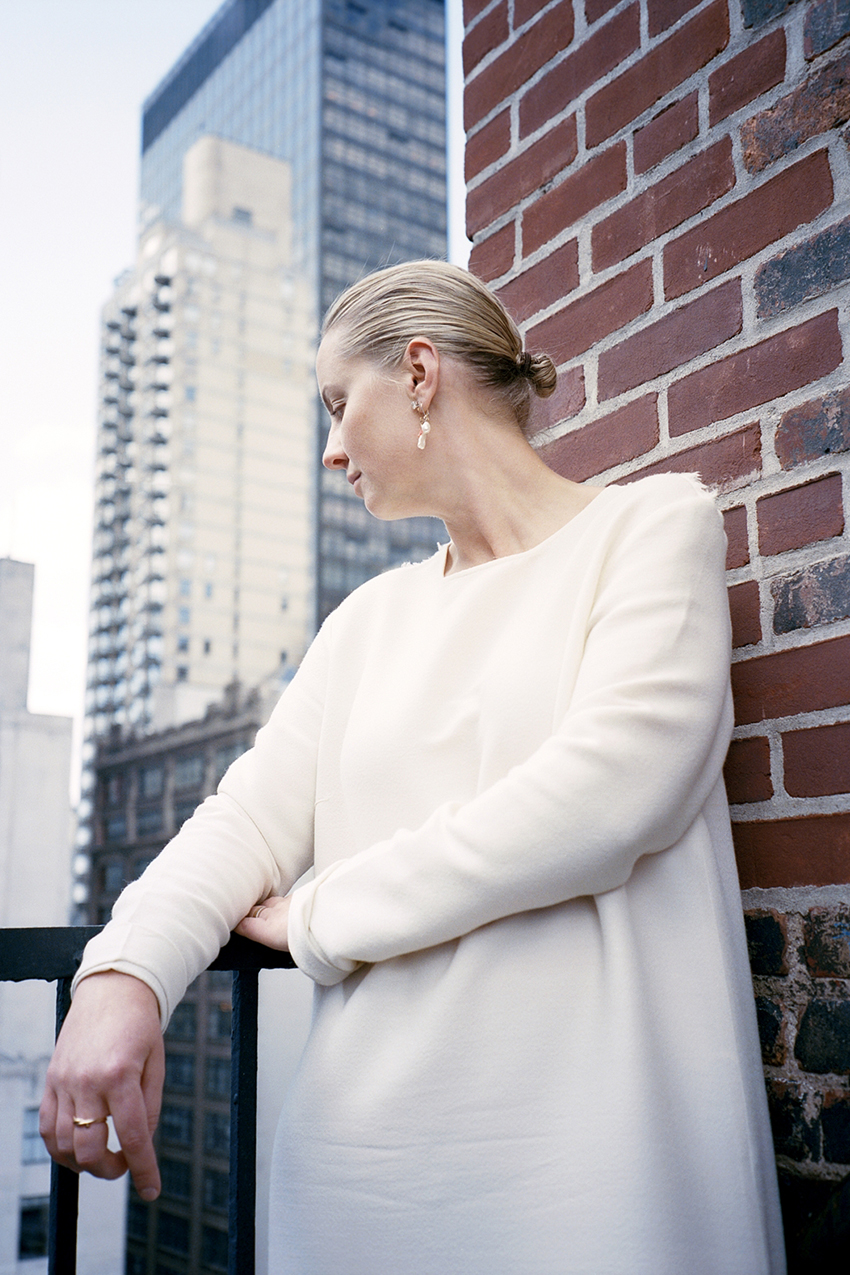
Although still quite new to the retail world, Albus Lumen is an Australian fashion brand that is already stocked in some of the most popular retailers in the industry, including Net-a-Porter, MatchesFashion.com, and more. Such international success comes as less of a shock after learning that founder Marina Afonina has worked everywhere from Elle to Vogue as both an editor and stylist. Afonina's designs are easy and wearable yet somehow feel perfectly forward. "The catalyst for establishing Albus Lumen was a lack of simple essentials for modern women, vacation-style basics that avoided trends and fads, an ethos that remains at the heart of the brand today," The Woolmark Company tells us.
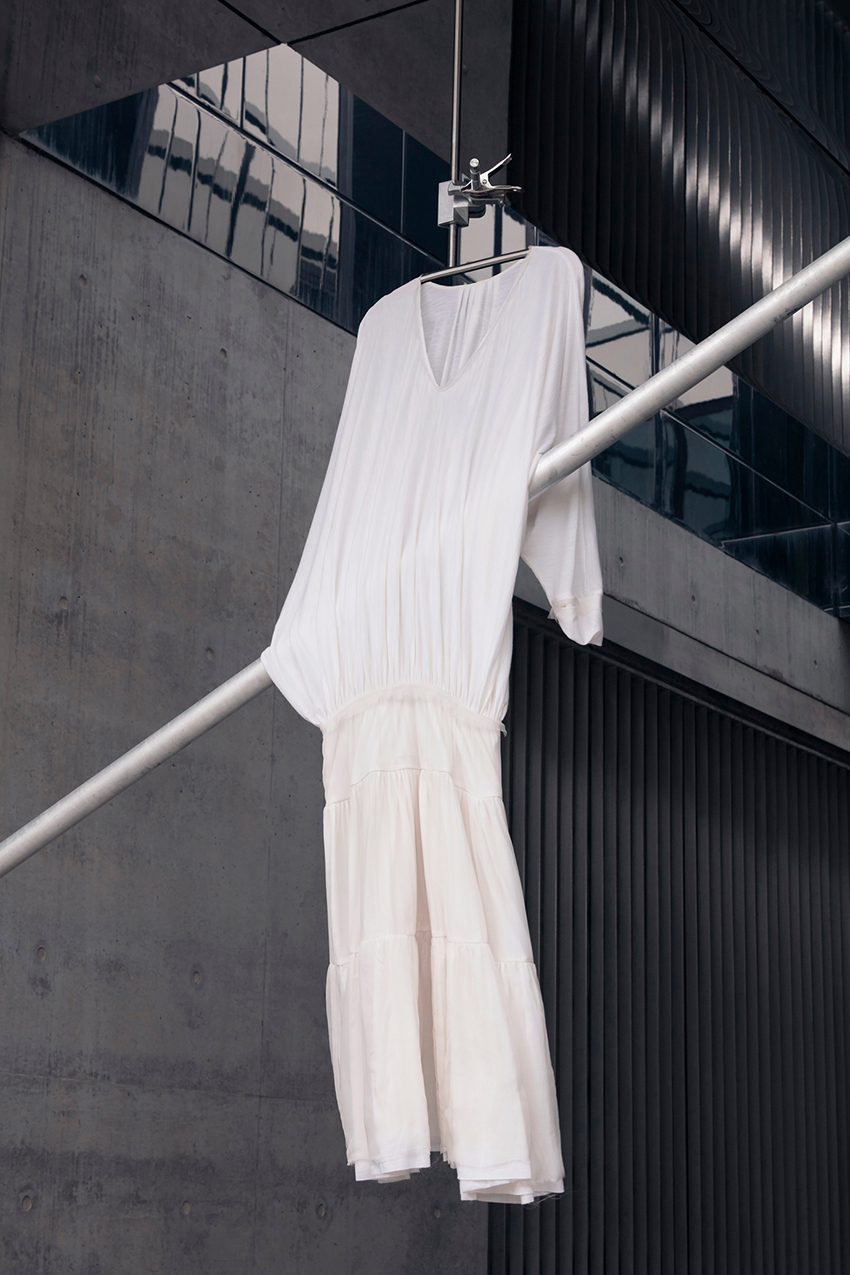
According to The Woolmark Company, the collection she will be presenting at the International Woolmark prize is filled with "sun-bleached coral, chalk and oyster tones, and light-as-shadow fabrics. Baroque pearls adorn modernist silhouettes and Merino wool and silk blends, drawing on Moroccan, Egyptian, and Grecian cultures." Afonina revealed she "wanted to create a dreamy collection with a sense of tactile luxury." The sketches of this collection are below and reflect just that.
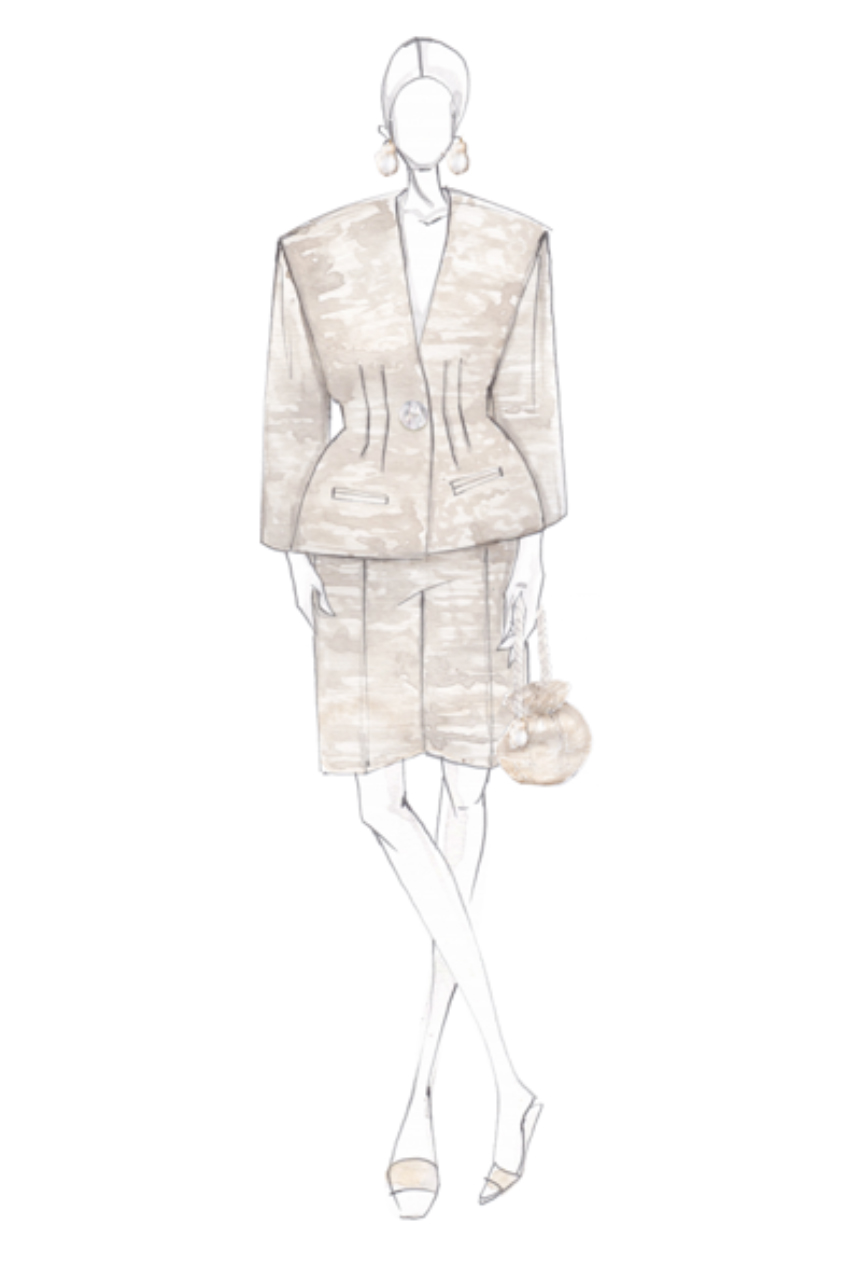
Tell us about the process of becoming a finalist in the International Woolmark Prize. Is this something that has been a goal of yours?
Being nominated as a finalist for the International Woolmark Prize is a massive honor, and we are extremely proud and excited to represent Australia and support the Woolmark Homegrown wool industry. Also, we are a growing business and being part of the Woolmark family gives us an opportunity to evolve and improve as a business on a whole new level.
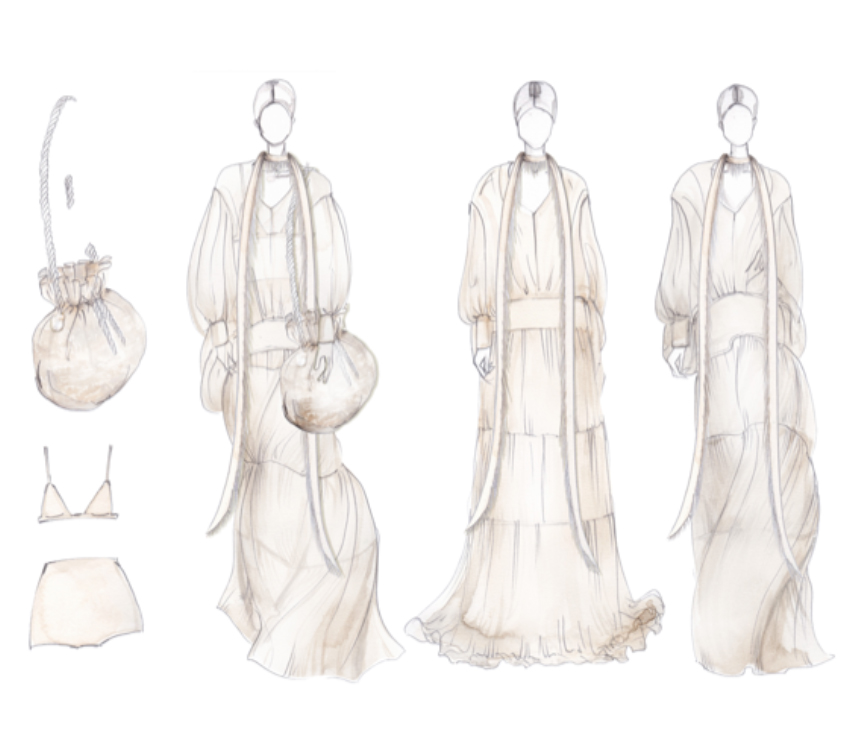
Being a finalist is already a huge honor, but what would winning this award mean to you as a designer?
To win the International Woolmark Prize would be an amazing opportunity to help change the perception of wool as a whole. Wool usually has been used in a heavier style, with an Albus Lumen goal to change that and create a new way of using wool—being light, sheer, and summer fabrications. So the funds will go toward creating and developing new fabrics and textiles.
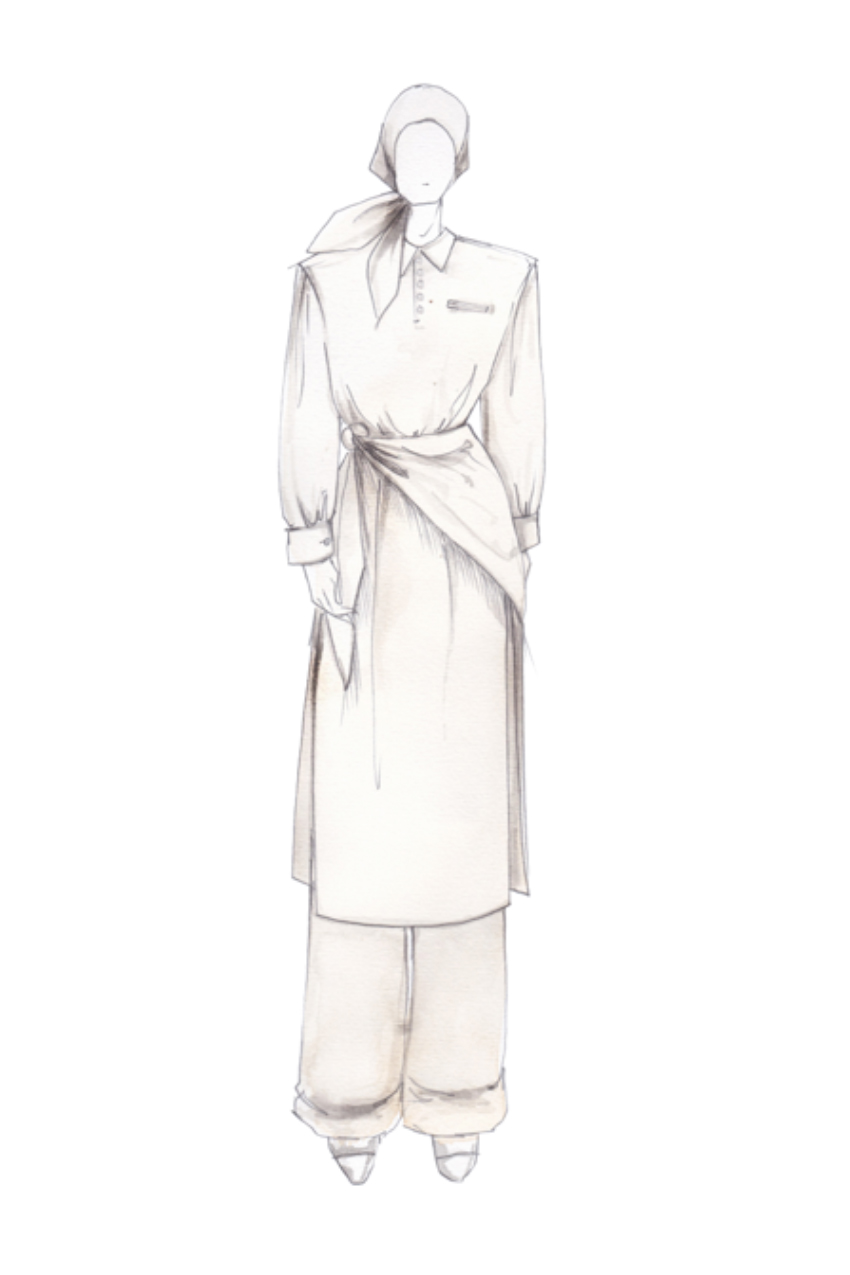
What can we expect from your collection at the IWP? What was your inspiration for it?
I wanted to create a dreamy collection with a sense of tactile luxury. So I started with the most obvious source of inspiration: the beauty found in Mother Nature.
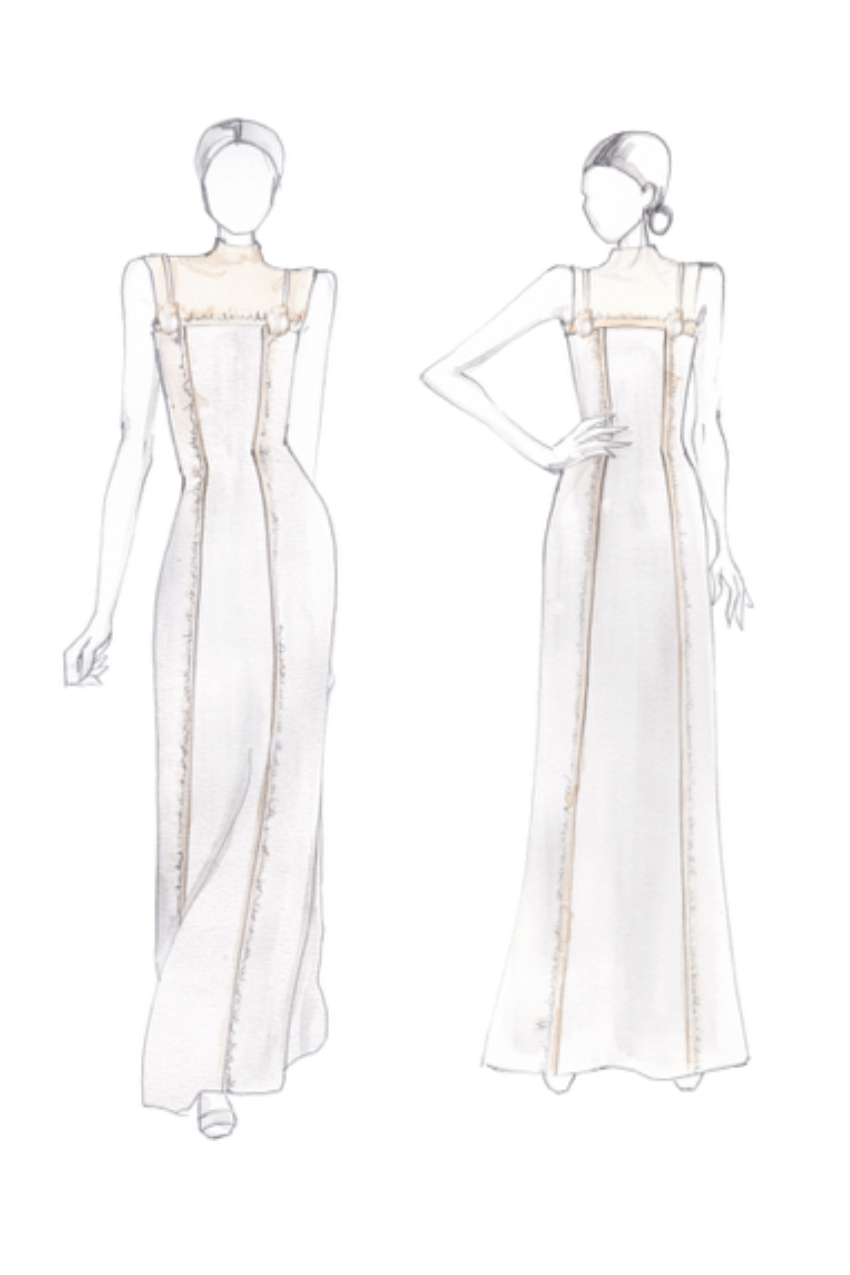
Explain the unique wool fabrication, process, or development that you used on this collection.
When a customer thinks of wool, they’re most likely to think of something that feels heavy and is too hot to wear outside of winter. But wool doesn’t need to be heavy. It’s a beautiful, natural fiber, which is luxe, breathable, and super versatile. I want to highlight these qualities that are part of Australian Merino wool’s special allure. It’s an all-white collection that provides the perfect opportunity to focus on the textural possibilities of the fabrics.
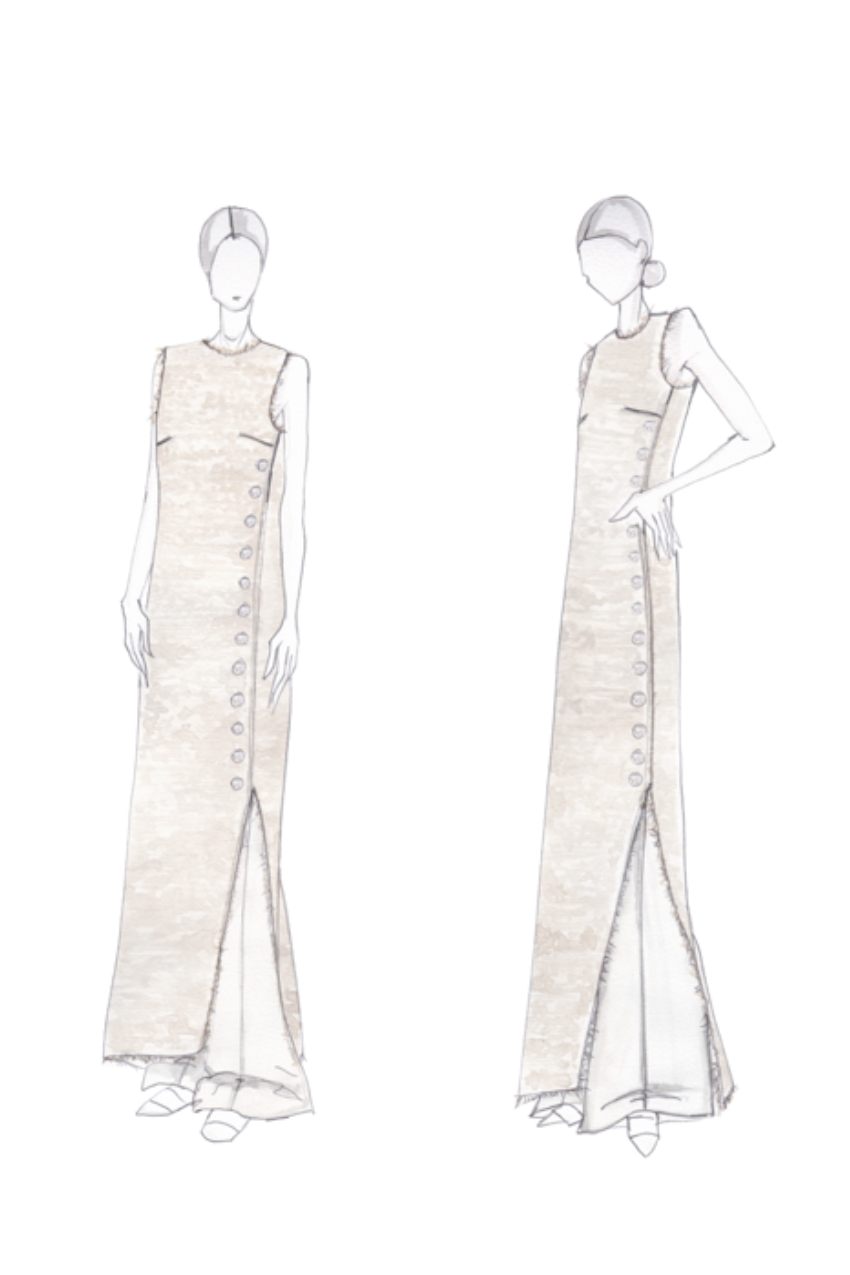
Brandon Maxwell
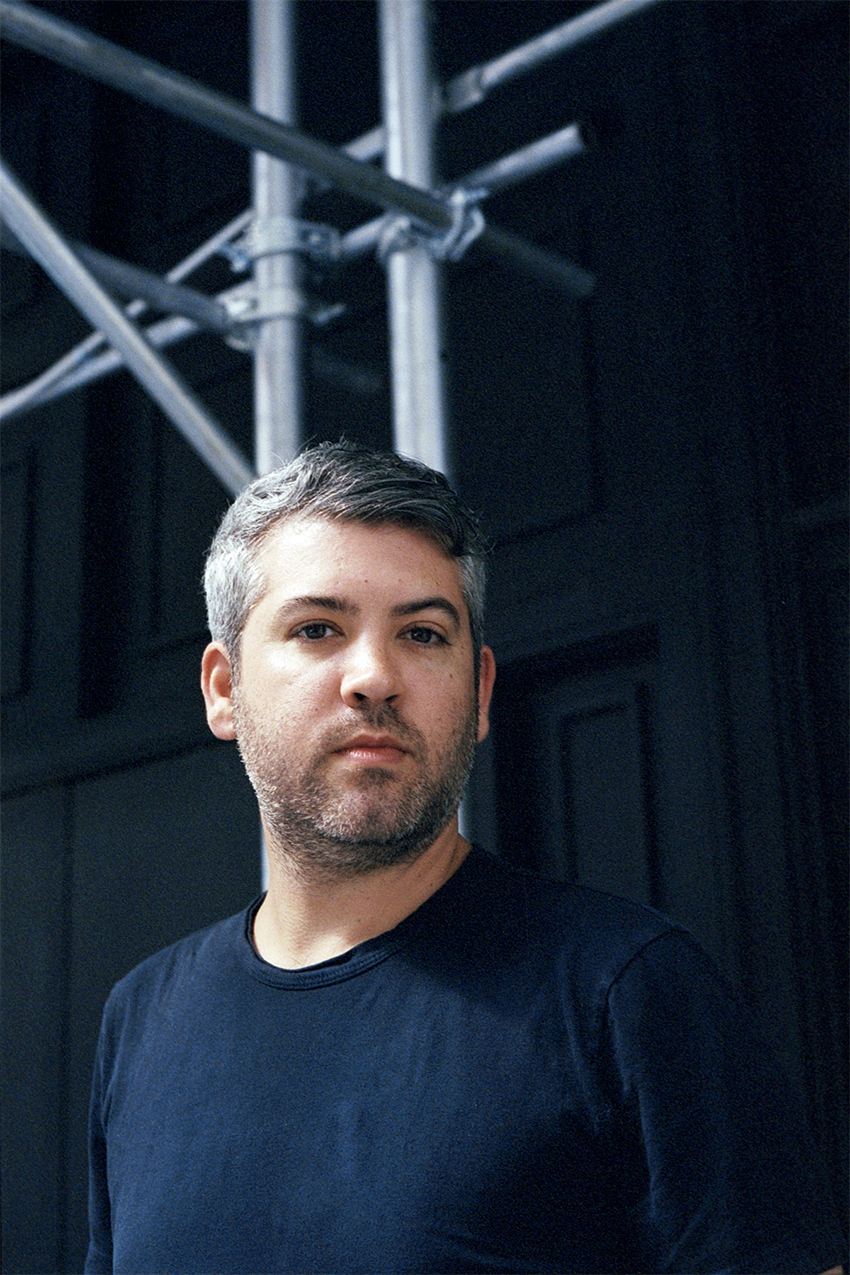
While there are many reasons the sartorial world is in love with Brandon Maxwell, his constant celebration of women is always at the top. Having just launched his luxury ready-to-wear label in 2015, the roster of celebrities who have worn his designs is unparalleled and includes Michelle Obama, Lady Gaga, Oprah Winfrey, and more. Casual, right? Additionally, just one year after starting his womenswear label, Maxwell was awarded the CFDA Swarovski Award for Womenswear, the Fashion Group International Rising Star Award for Womenswear, and was an LVMH Prize Finalist.
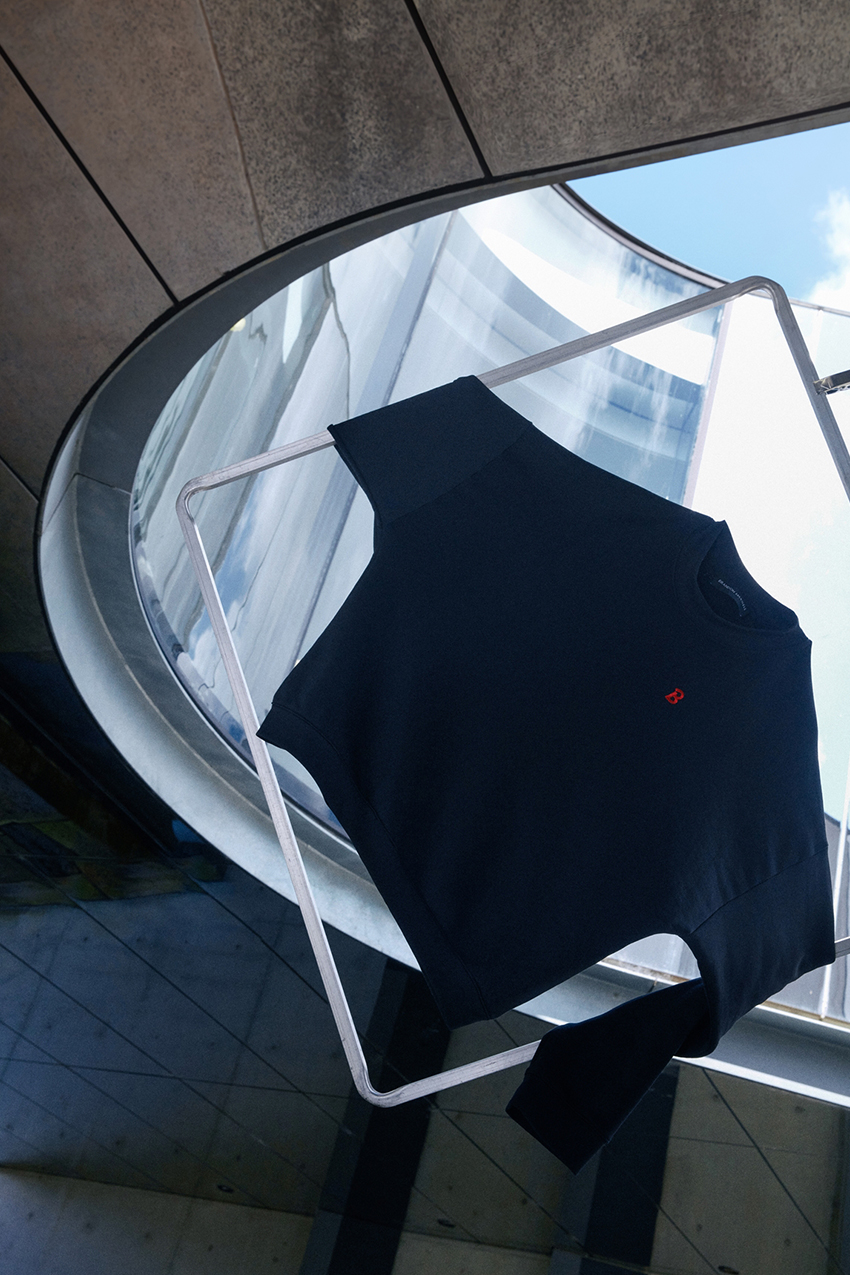
Maxwell's pieces are designed with the intention of making a woman feel like her absolute best self. Although known for more luxurious eveningwear options, his collection for the International Woolmark Prize is veering a little more practical. The Woolmark Company informed us that "Maxwell is conscious that his customer is multifaceted. His International Woolmark Prize collection, then, aims to satisfy her wardrobe needs, blending athleisure and elegance in wool-rich looks."
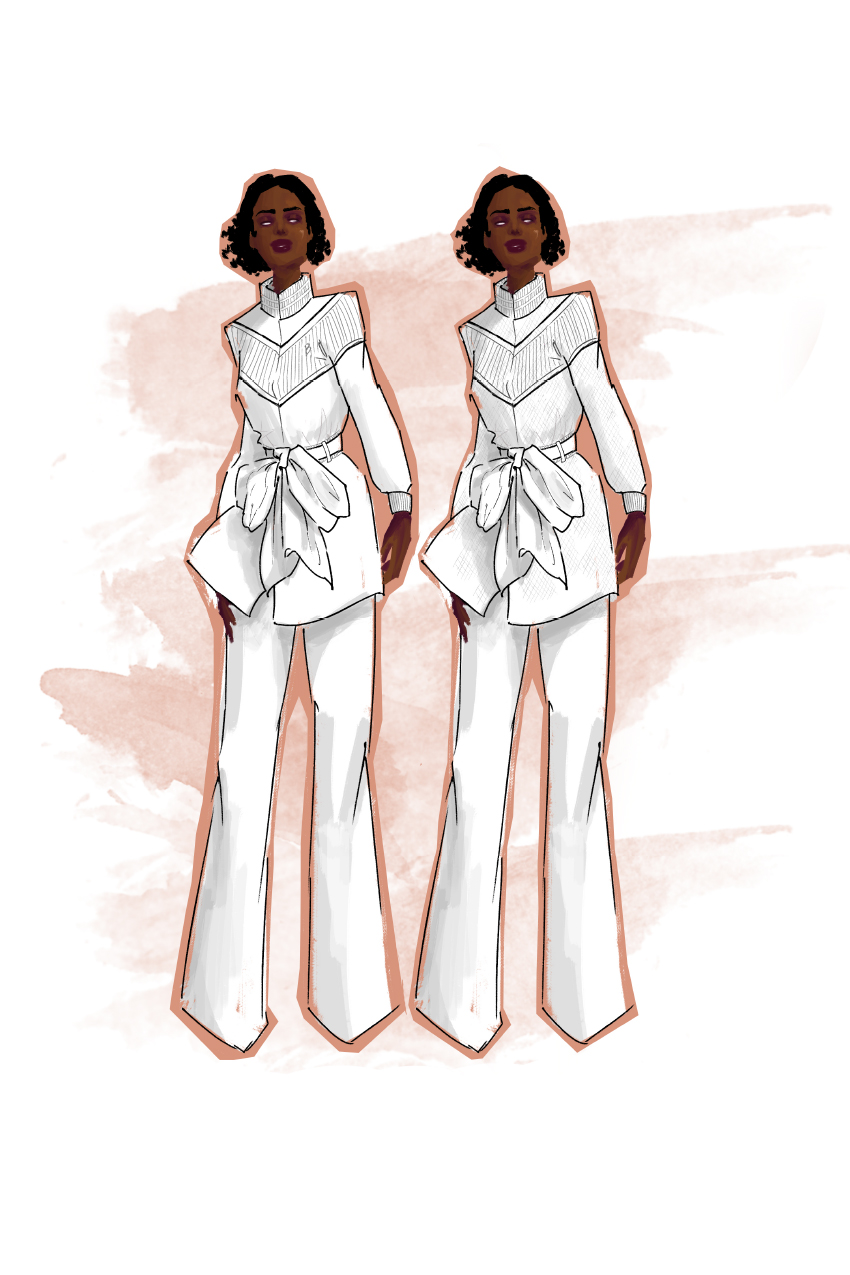
Tell us about the process of becoming a finalist in the International Woolmark Prize. Is this something that has been a goal of yours?
The Woolmark prize is one of the premier global fashion innovation competitions. I’m so proud to be a semi-finalist and I’m looking forward to the finale event in London on Saturday.
Winning this award opens up a huge opportunity for my brand. The added exposure to new markets is especially important from a business standpoint.
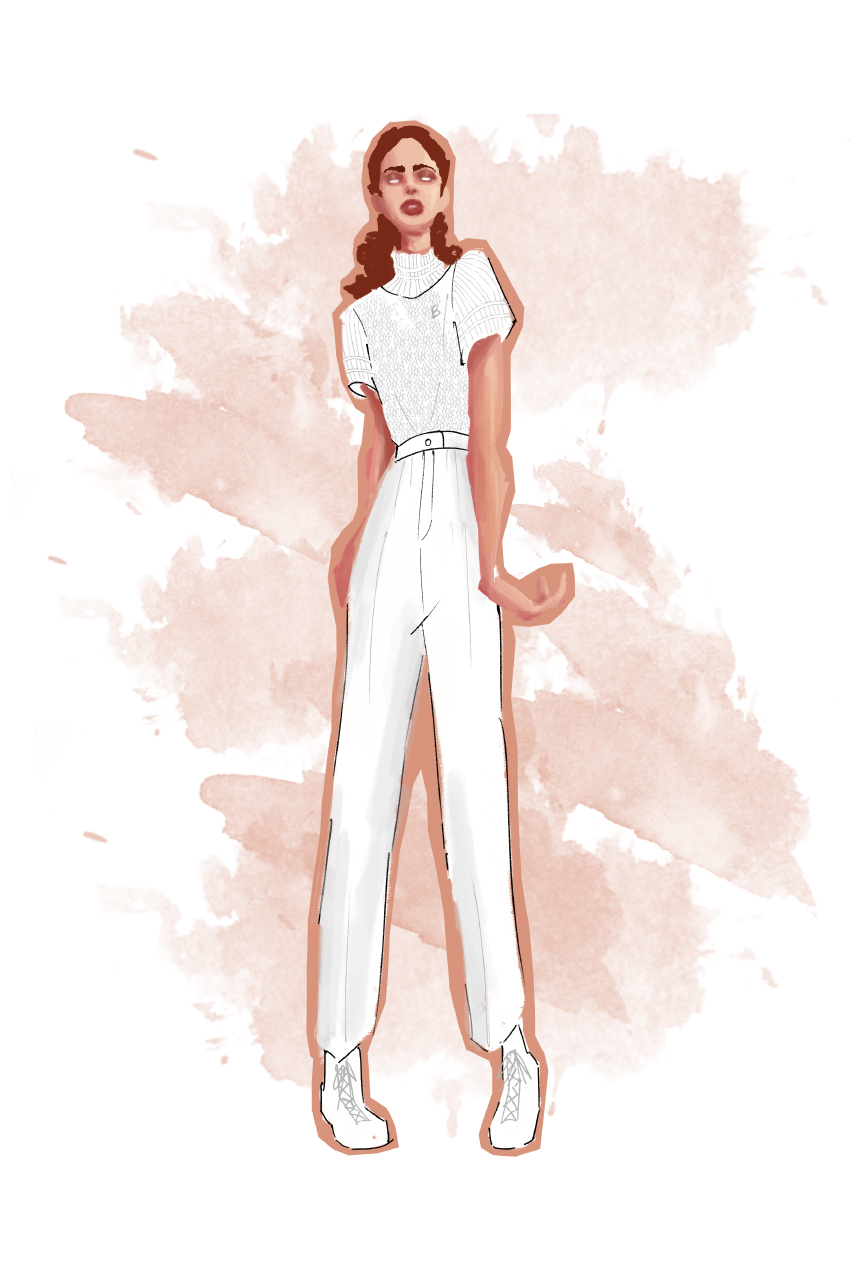
What can we expect from your collection at the IWP? What was your inspiration for it?
It’s my first foray into activewear. I’m using wool to make what some might call athleisure or athluxury. Little tennis dresses, pieces that you can wear to golf or to run errands on the weekends!
I’m inspired by the women around me. I think a lot about what they need and how I can add items their wardrobe that will help make their lives easier or more beautiful.
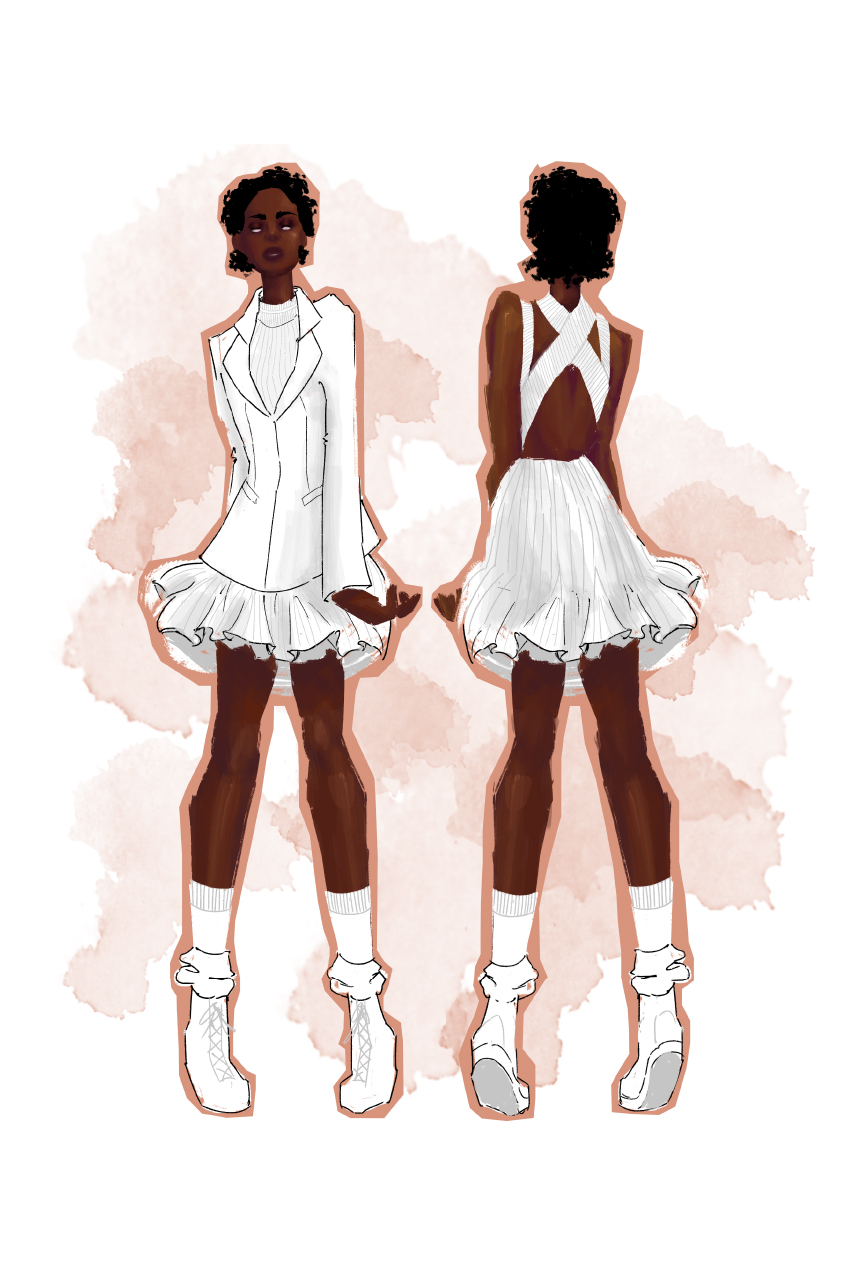
Explain the unique wool fabrication, process, or development that you used on this collection.
Wool is so versatile. I never knew until my partnership with Woolmark that you could create activewear with wool. There is a natural elasticity in Merino wool garments that stretch with you and return to their original shape. So Merino wool is ideal for exercising. I loved this idea of working with a fabric that I thought was only for itchy sweaters but making chic, comfortable athleisure clothing. For our collection, we utilized special techniques developed by Nanshan that “binds” two wool fabrics together without using any synthetics. It was fascinating to learn what fabrics can be naturally capable of through various processes.
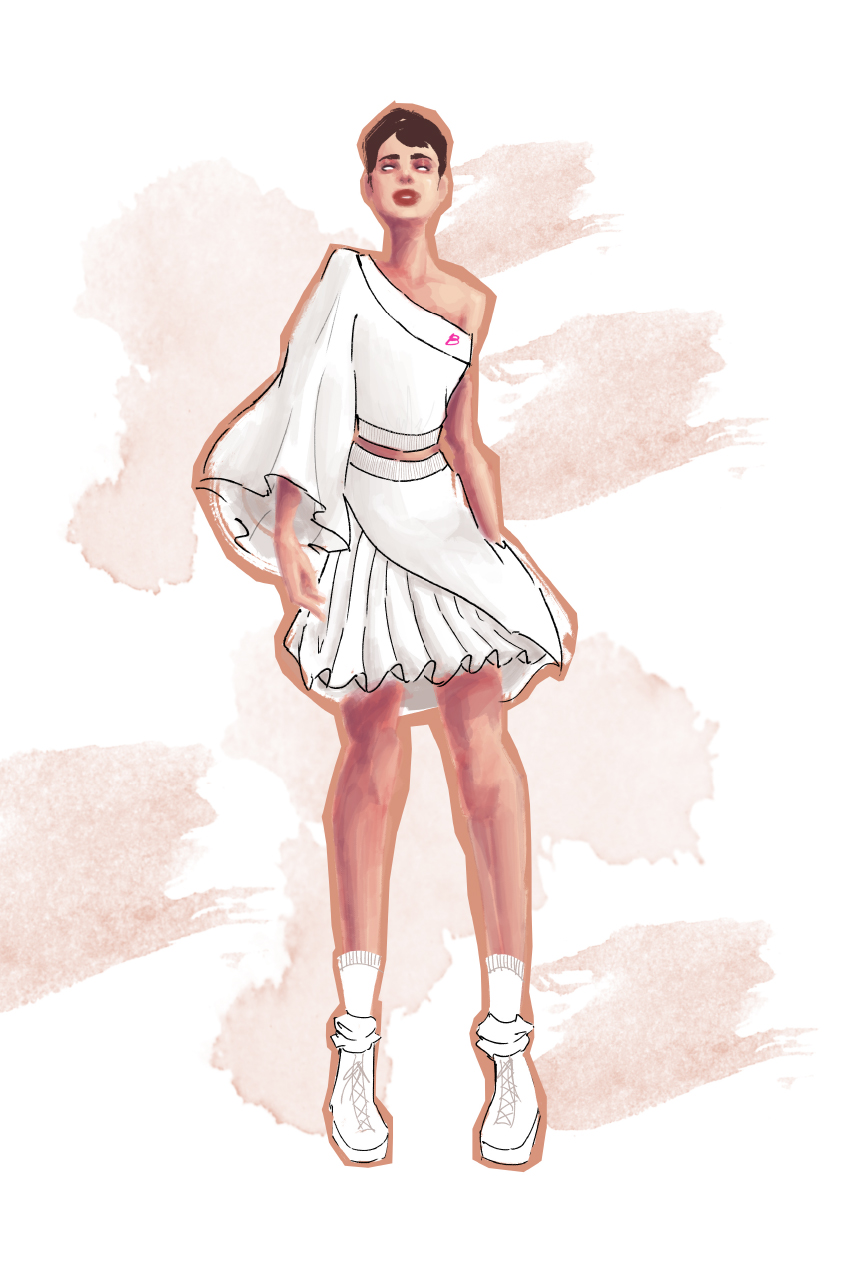
What are some of the other ways you execute sustainability within your brand?
As a small brand, we naturally keep our waste to a minimum. We order materials that fulfill our orders with minimal to no excess materials left after we run our production. We repurpose muslins and samples that may have not met earlier cuts but still have a use. Our sourcing is becoming more sustainable over time as we learn about different materials. Honoring individuality is the core of our brand ethics, and this approach is also used in the relationships we have with our factories and textile partners. We’re learning about their companies, how they treat their employees and the environment—all of these components are factored into our decisions in both the immediate and long-term strategy.
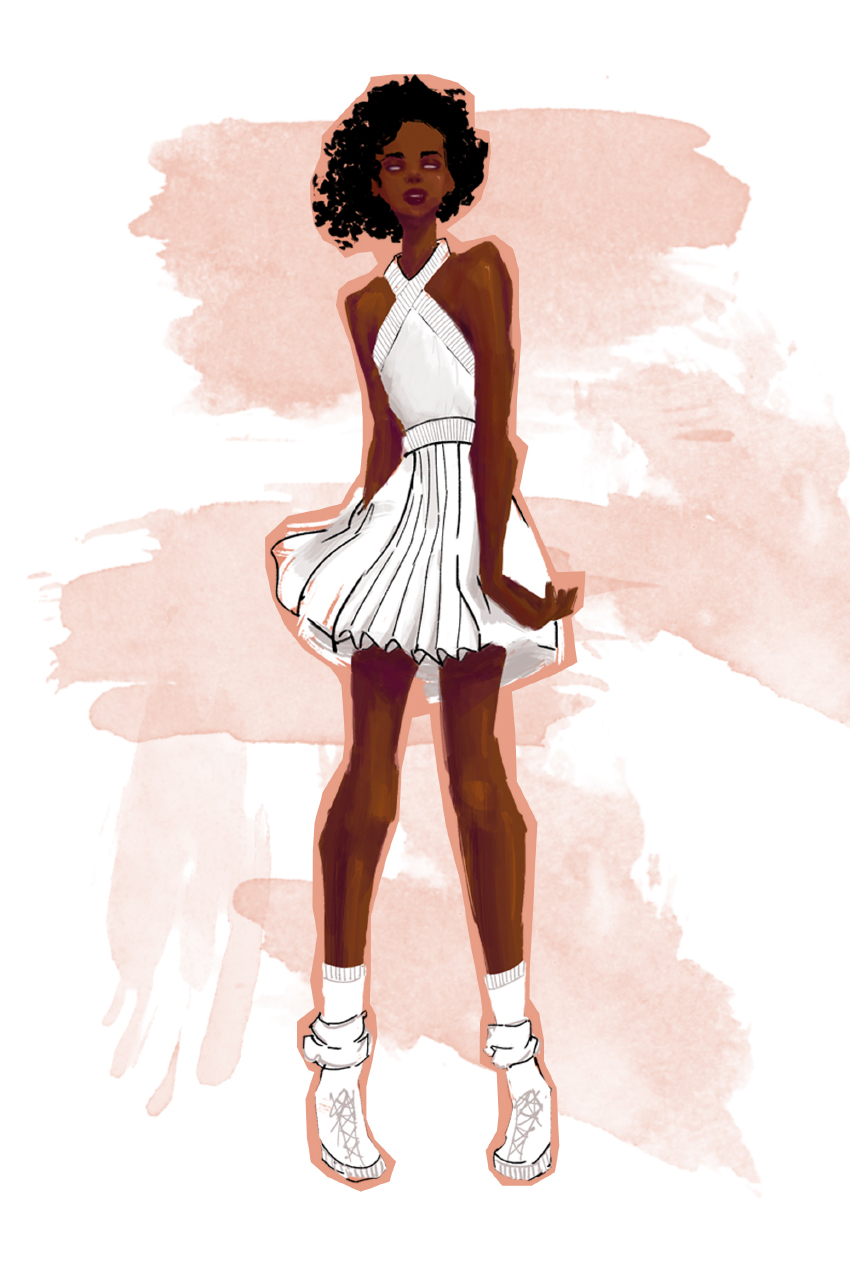
Colovos
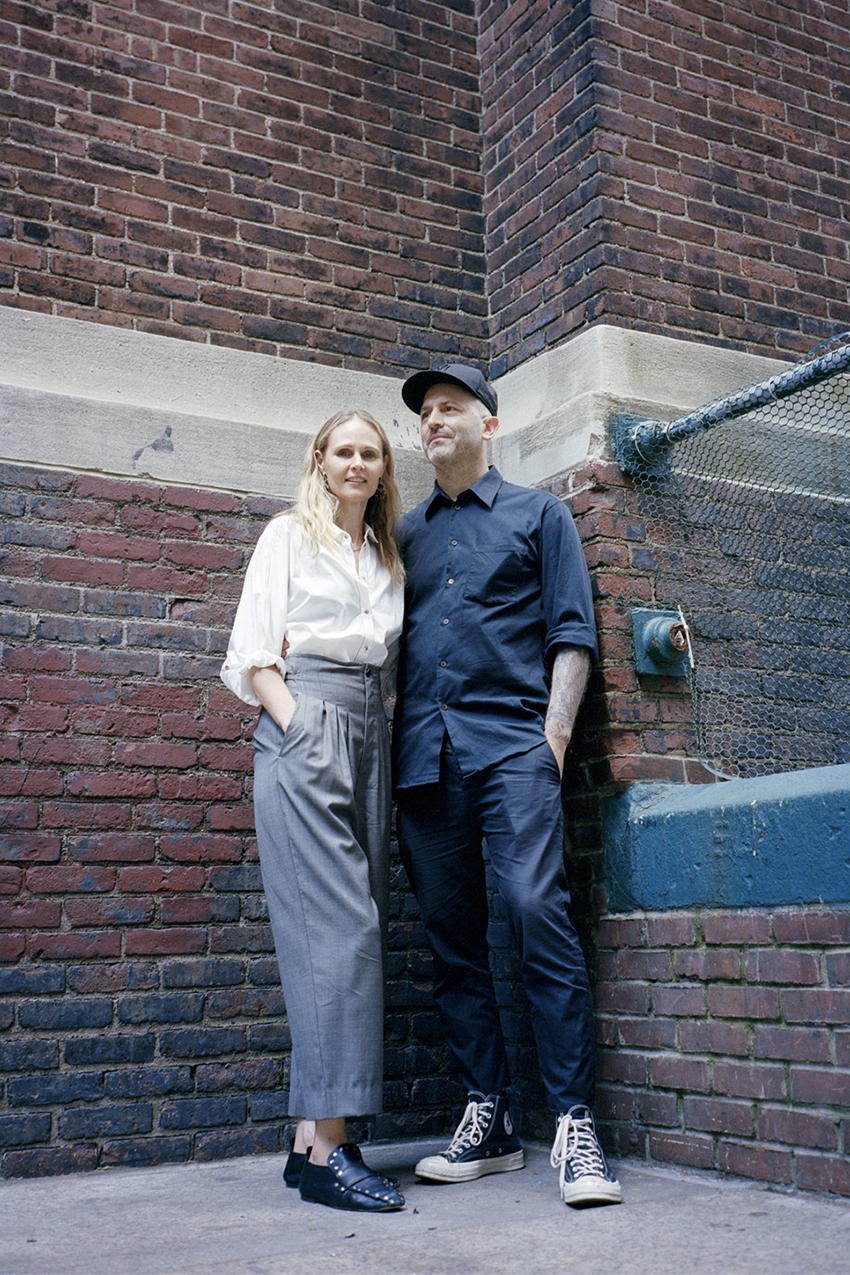
Colovos is the love child of husband and wife collaborators, Michael and Nicole Colovos. The couple met in 2002 while Michael was studying fashion in New York and Nicole was working at Harper's Bazaar. The rest is pretty much history. Before launching Colovos in 2016, the two had already launched a denim line, Habitual, that was the recipient of an award in the first annual CFDA/VogueFashion Fund for emerging designers and re-launched Helmut Lang where they worked as co-creative directors for eight years. Intrigued yet?
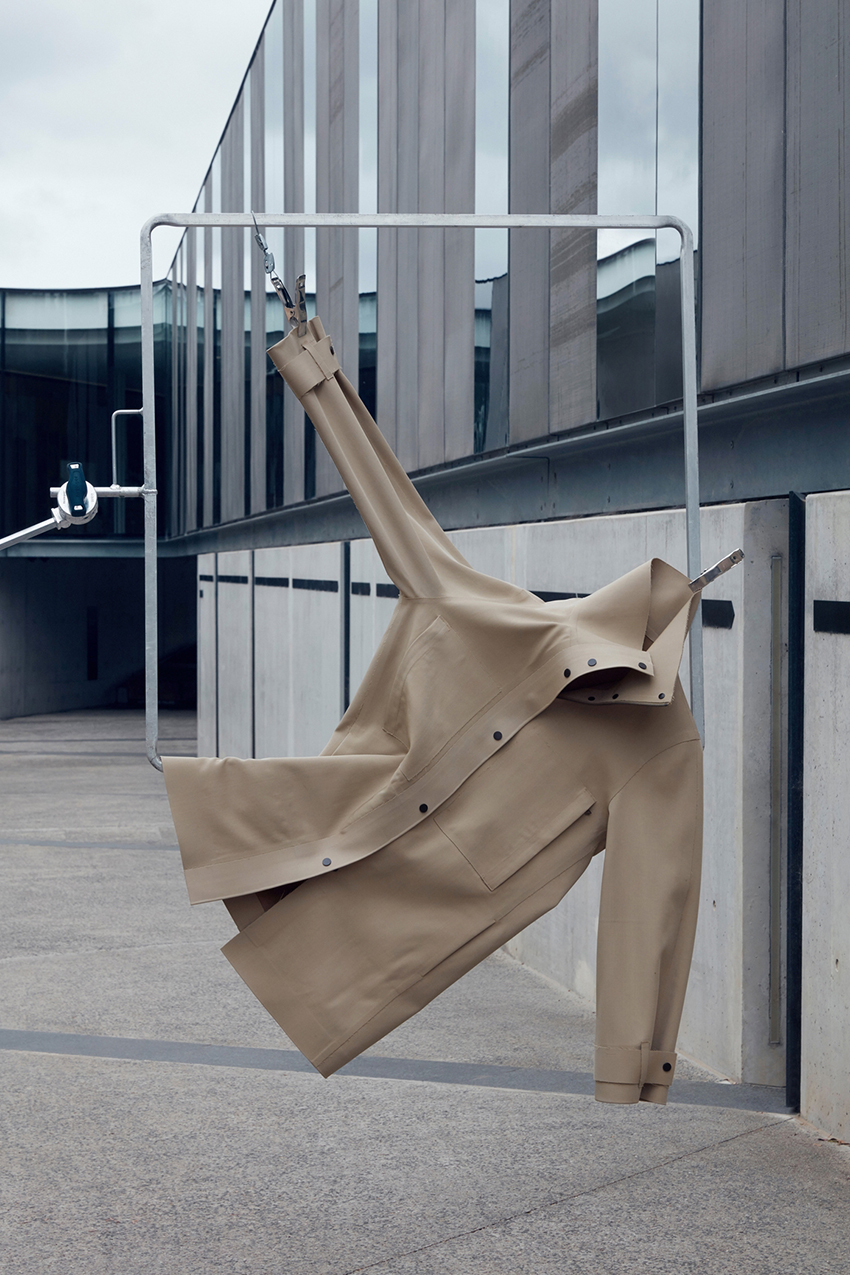
The aesthetic of Colovos is a simple one—structured, and modern with exquisite attention to detail. "The designers behind Colovos are keenly aware of their environmental footprint and the functionality that today’s consumers demand, and as such, they’ve worked with mills that are using socially responsible production cycles. Together, groundbreaking innovations such as non-shrink treatments that allow for washability, crease-resistance and optimal color rendering make wool both softer and easier to wear," The Woolmark Company tells us.
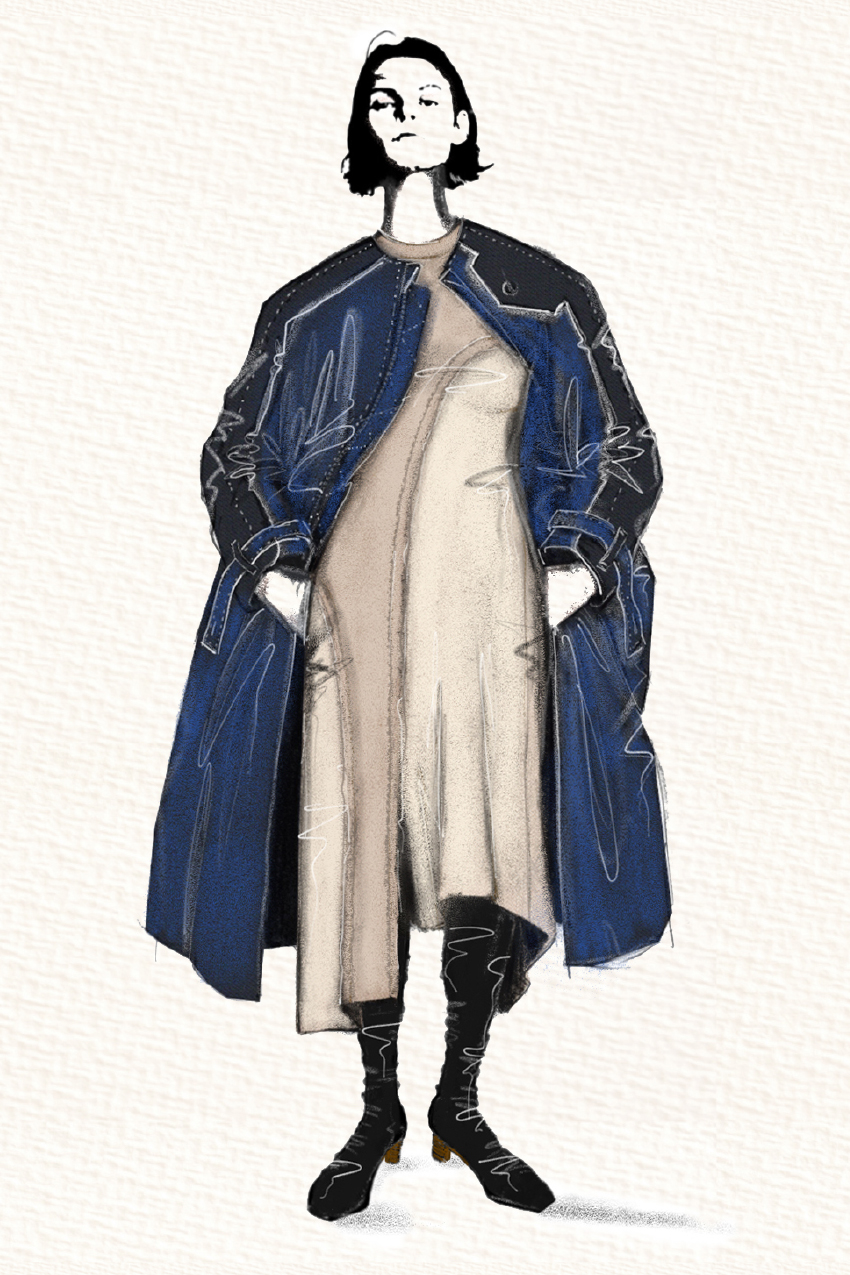
Tell us about the process of becoming a finalist in the International Woolmark Prize. Is this something that has been a goal of yours?
It’s a huge honor, and we are truly grateful to have been selected as a finalist. The process was very organic; we had a clear vision for what we wanted to say with the fiber and we were very purposeful with the execution of that message. We have always been drawn to wool for the way it looks and feels from an aesthetic standpoint. The further we got in the process, the more we learned about the technical properties of wool and how well it fits into our sustainability and lifestyle goals.
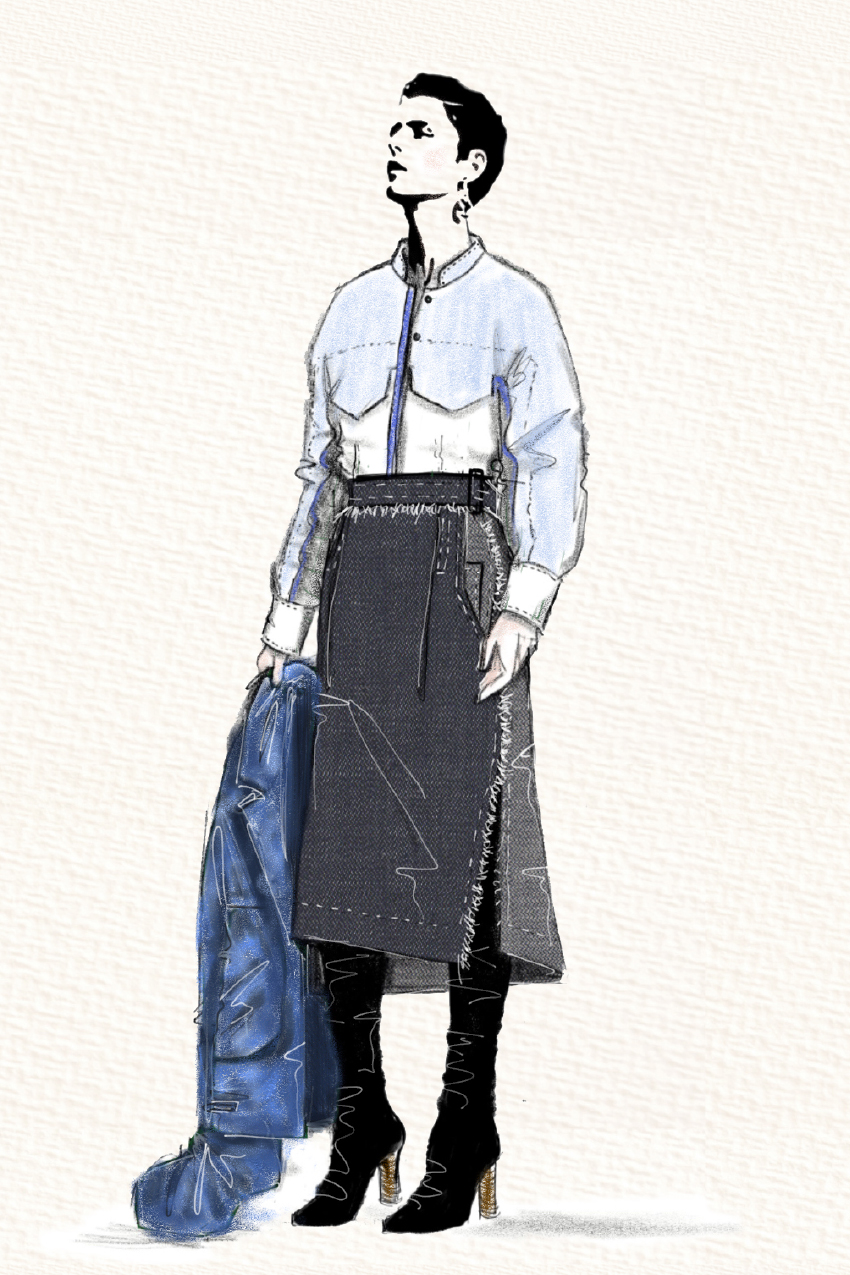
What can we expect from your collection at the IWP? What was your inspiration for it?
Our collection is down to earth with some surprises that make you look at wool in a way that mixes luxury and tailoring with the casual versatility of something you want to wear every day like a favorite pair of jeans.
We were inspired by active sportswear uniforms and utilitarian workwear that pre-date the advent of synthetic fibers. We were drawn to the chic tailoring and the everyday functionality of the garments.
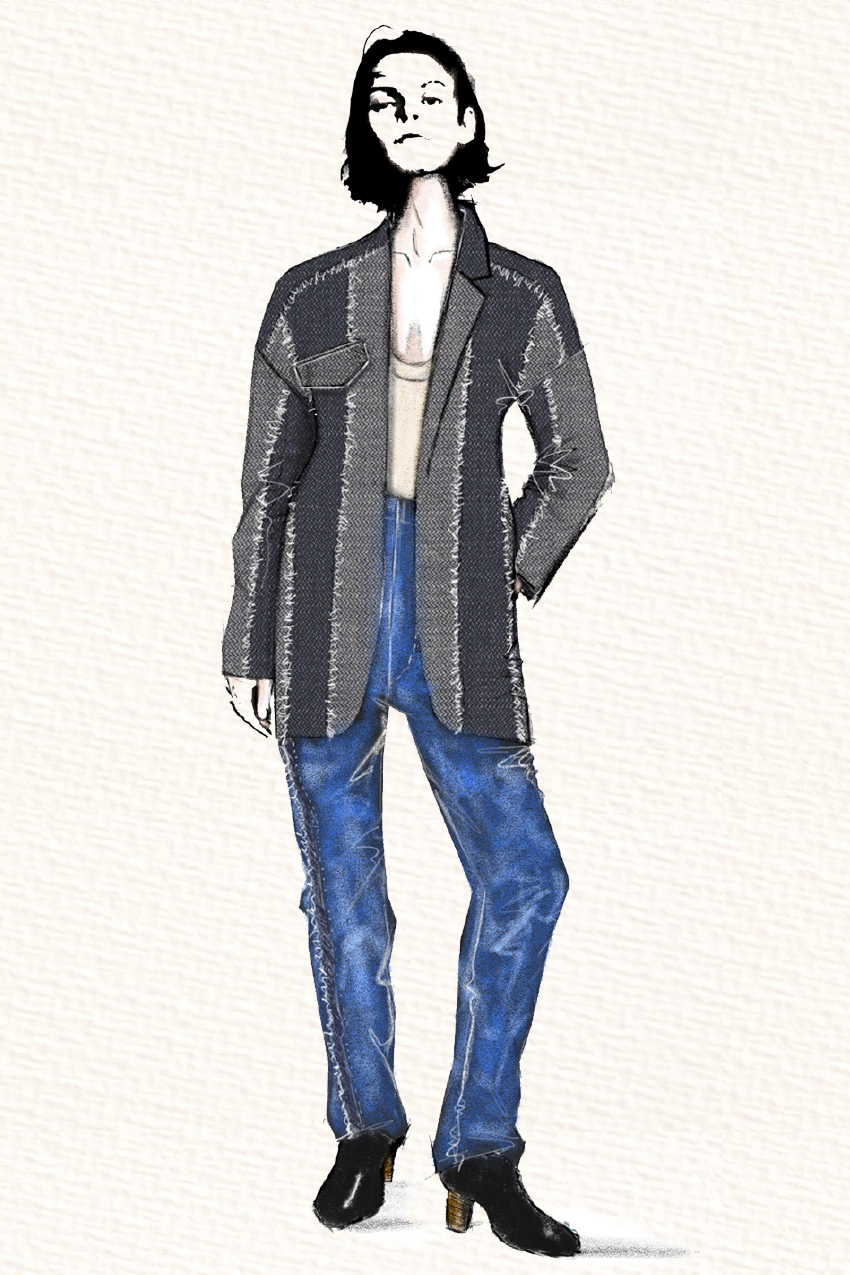
Explain the unique wool fabrication, process, or development that you used on this collection.
We took advantage of new and developing technologies that are able to make and finish wool in ways that would make you think twice about what fiber you were wearing. Soft, versatile, lightweight, seasonless, technical. The mills we chose to partner with have adopted sustainable practices with the production of the fabrics. They are part of the Green Peace detox program, among other sustainable accreditations, to eliminate the use of toxic chemicals creating wool that is washable, wrinkle-resistant, and naturally waterproof while not harming the environment.
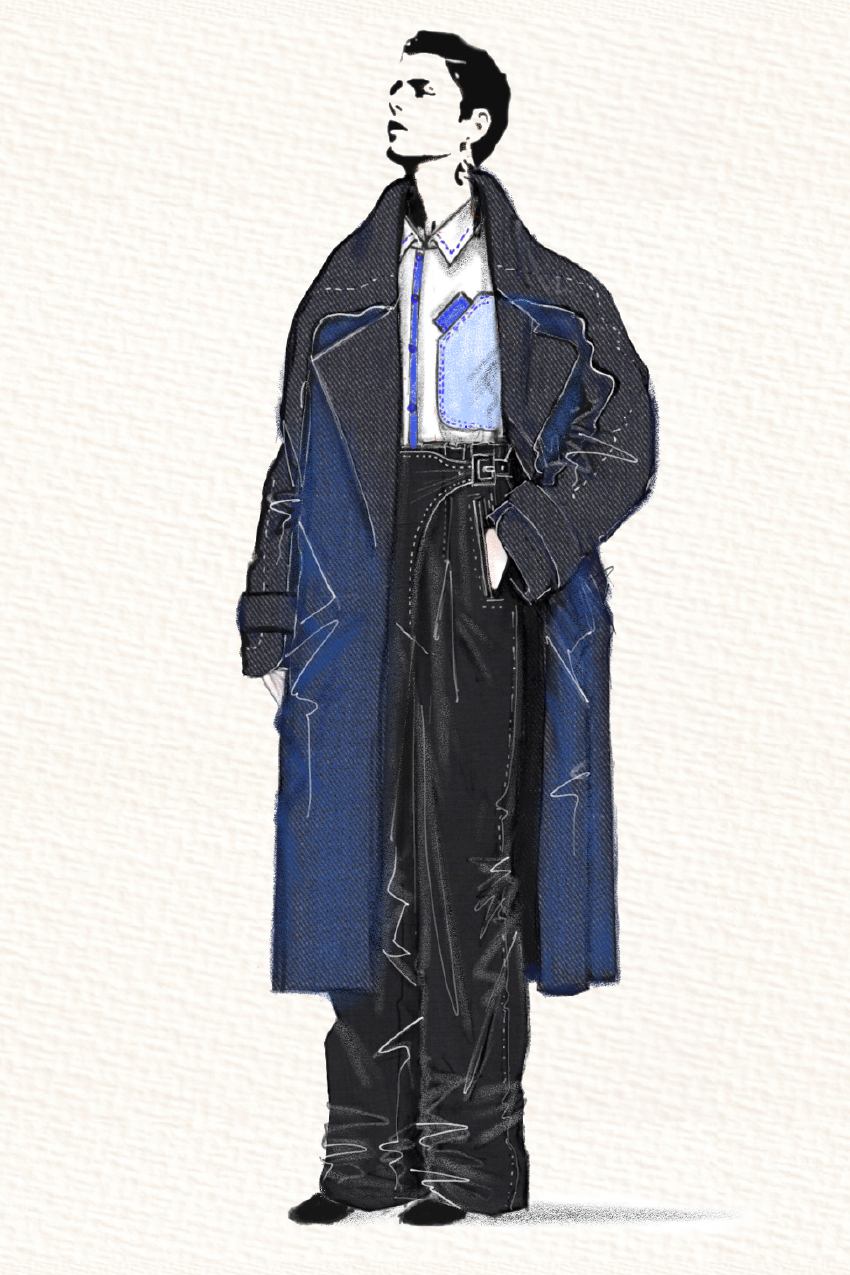
What are some of the other ways you execute sustainability within your brand?
We are eliminating plastics by using compostable poly-bags for shipping our garments. We are using hardware made of post-production recycled materials from other industries. Any labels we make are from post-consumer plastic cleaned from the ocean. All paper hangtags we use are compostable. We are reducing our carbon footprint by narrowing the distance between raw materials, production, and shipping. We are creating a zero-waste program for the first time as part of the IWP, in order to reclaim all post-production materials to re-make into new fabrics, which, when sold as garments, we will take a percentage of the proceeds to donate to charitable organizations committed to cleaning the planet and helping protect wildlife.
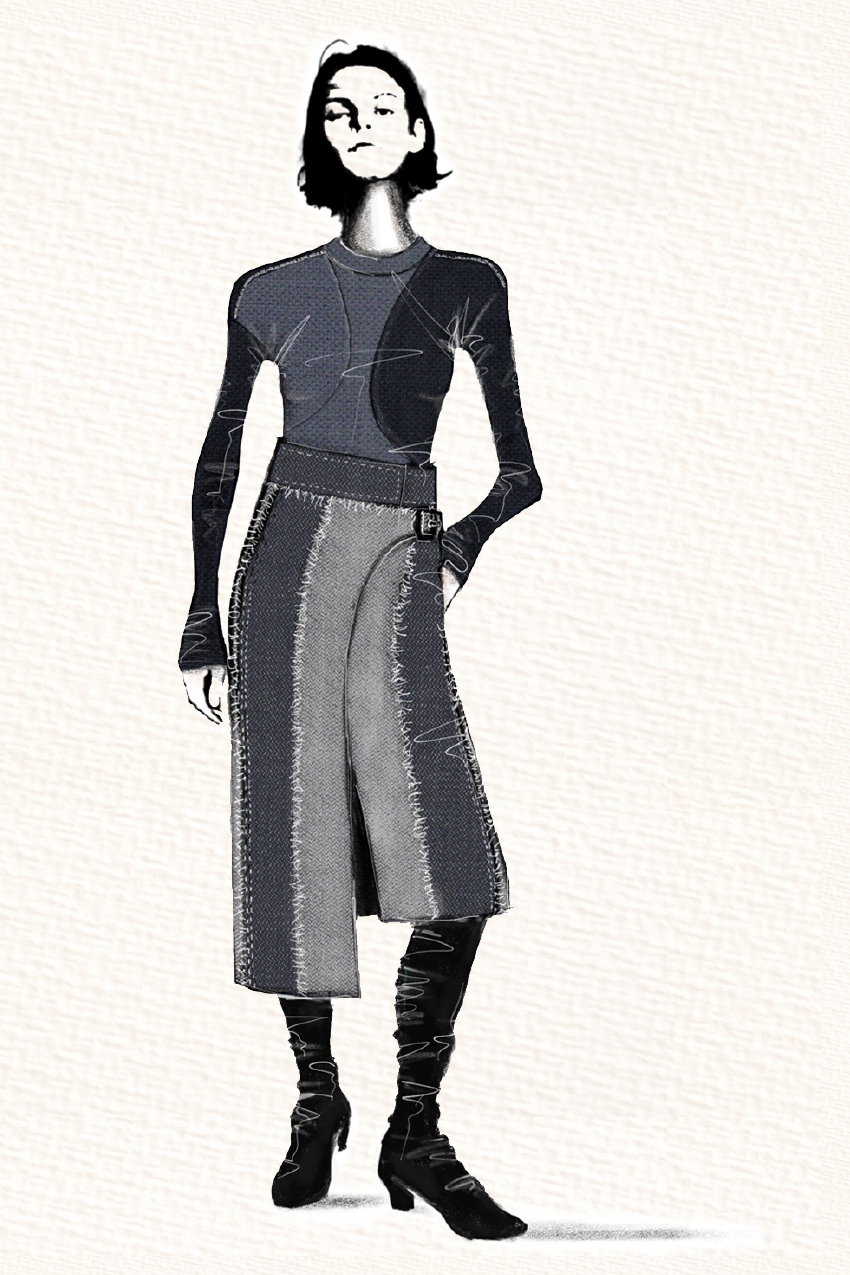

Lauren Eggertsen is currently the editorial director of Who What Wear and has worked at the company for over nine years, where she started as an associate editor and has since worked her way up. Lauren has worked in the Los Angeles and New York Who What Wear offices but currently calls L.A. home. Here, she leads and manages Who What Wear's editorial team and oversees all editorial content. Lauren's role also includes helping to set the fashion direction for all original photo shoots and often styles many celebrity cover shoots, including big names like Kaia Gerber, Normani, and Sabrina Carpenter. She has also attended multiple fashion weeks, including New York, London, Milan, and Paris, where her style has been featured on sites such as Vogue, Harpers Bazaar, and Elle.
-
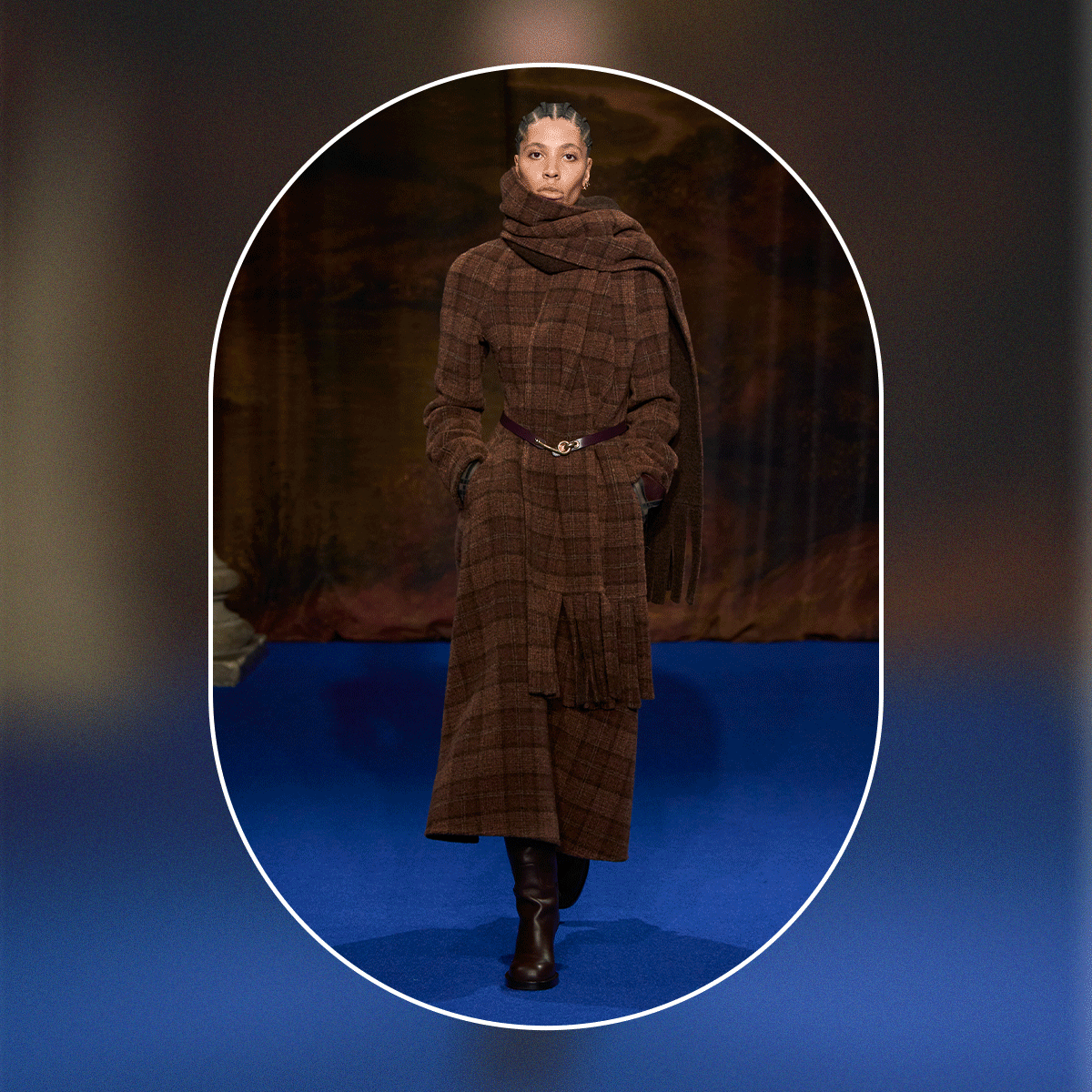 OTK Boots, Velvet, and A-Listers Galore: Why Daniel Lee's Burberry Is Stronger Than Ever
OTK Boots, Velvet, and A-Listers Galore: Why Daniel Lee's Burberry Is Stronger Than EverThe British designer continues to prove himself.
By Anna LaPlaca
-
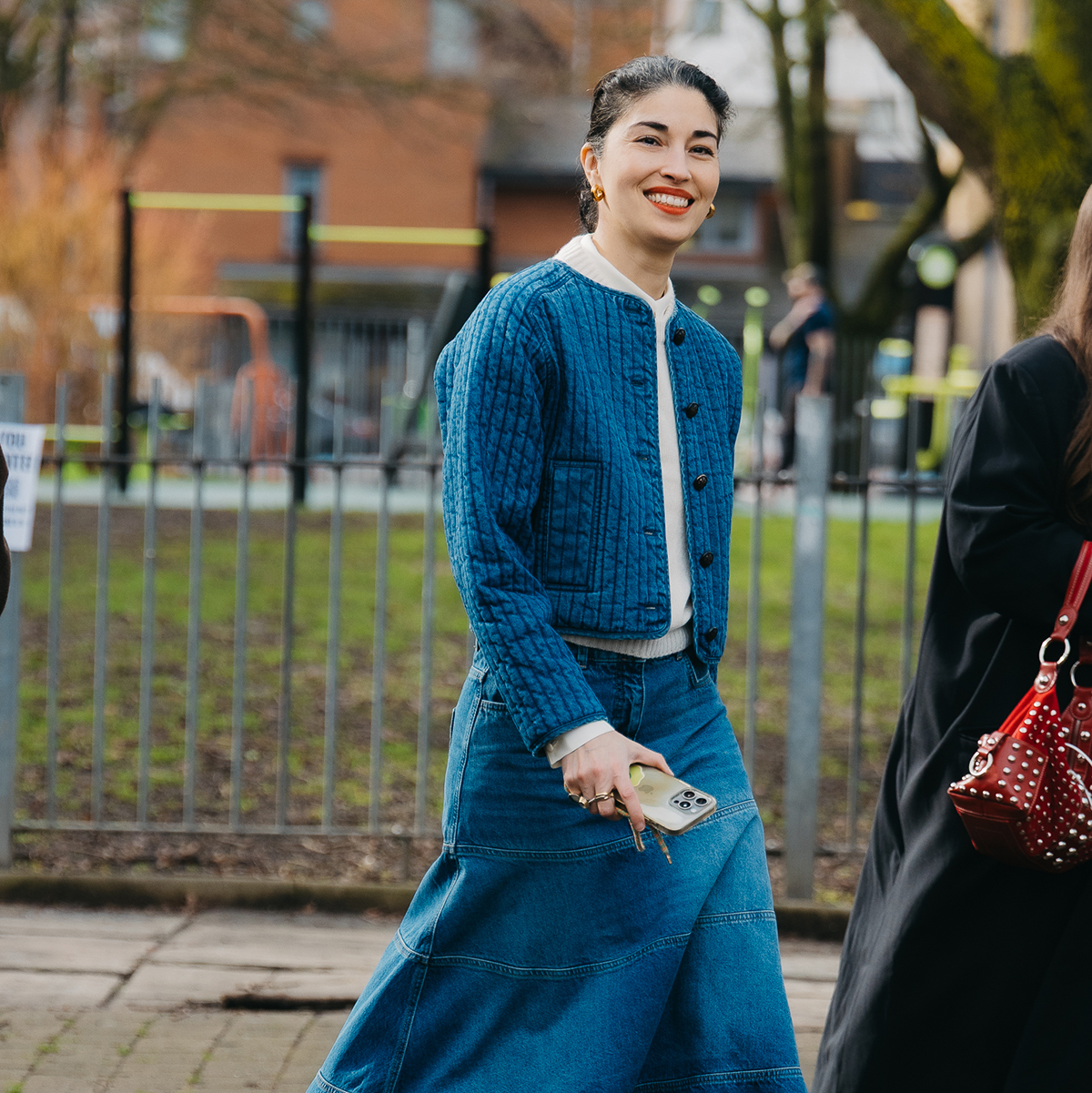 10 Elegant 2025 Trends the Show Attendees Were Wearing at London Fashion Week
10 Elegant 2025 Trends the Show Attendees Were Wearing at London Fashion WeekPrepare to be inspired.
By Allyson Payer
-
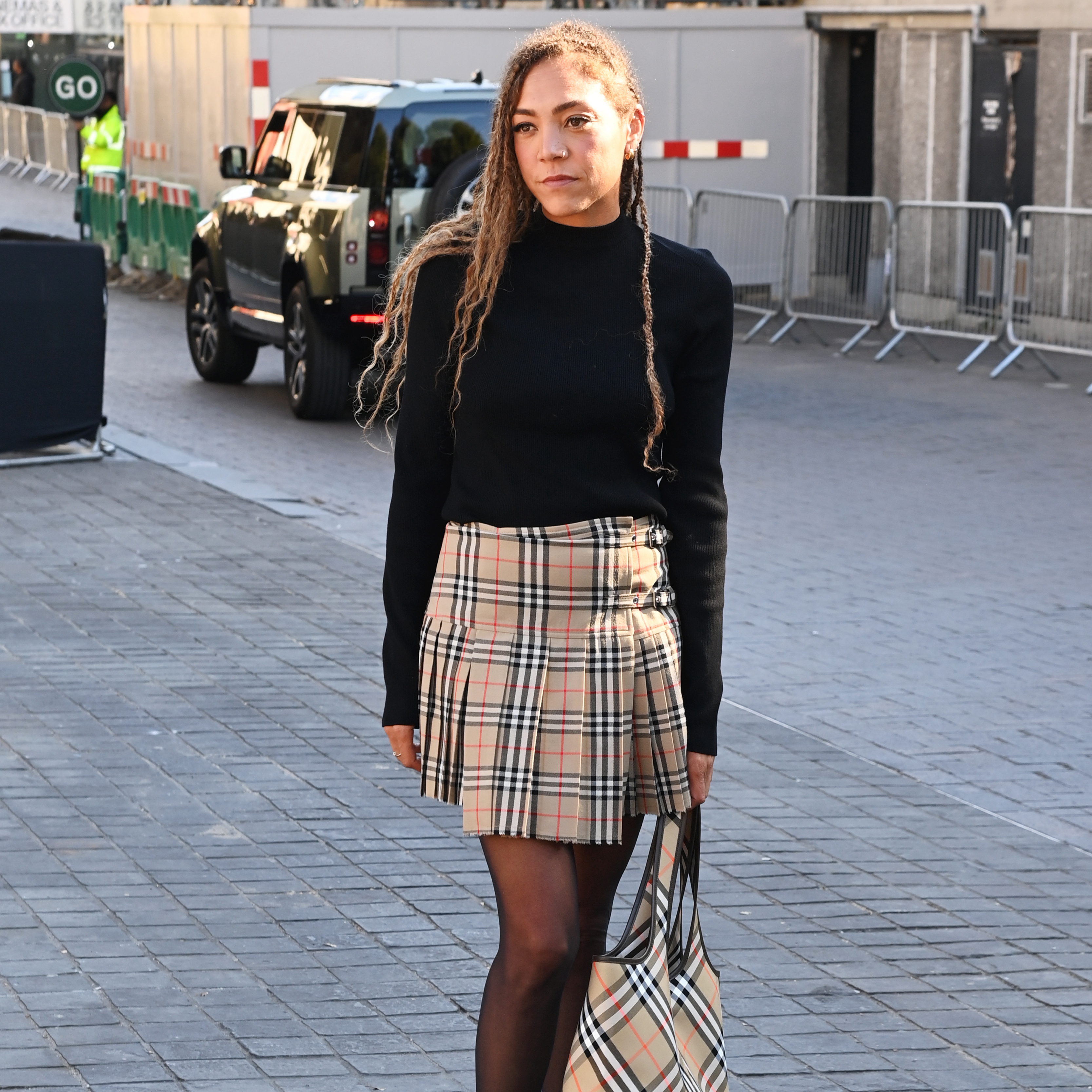 Stylish Londoners Have Officially Ditched Dresses for Skirts
Stylish Londoners Have Officially Ditched Dresses for SkirtsThe bolder, the better.
By Emma Spedding
-
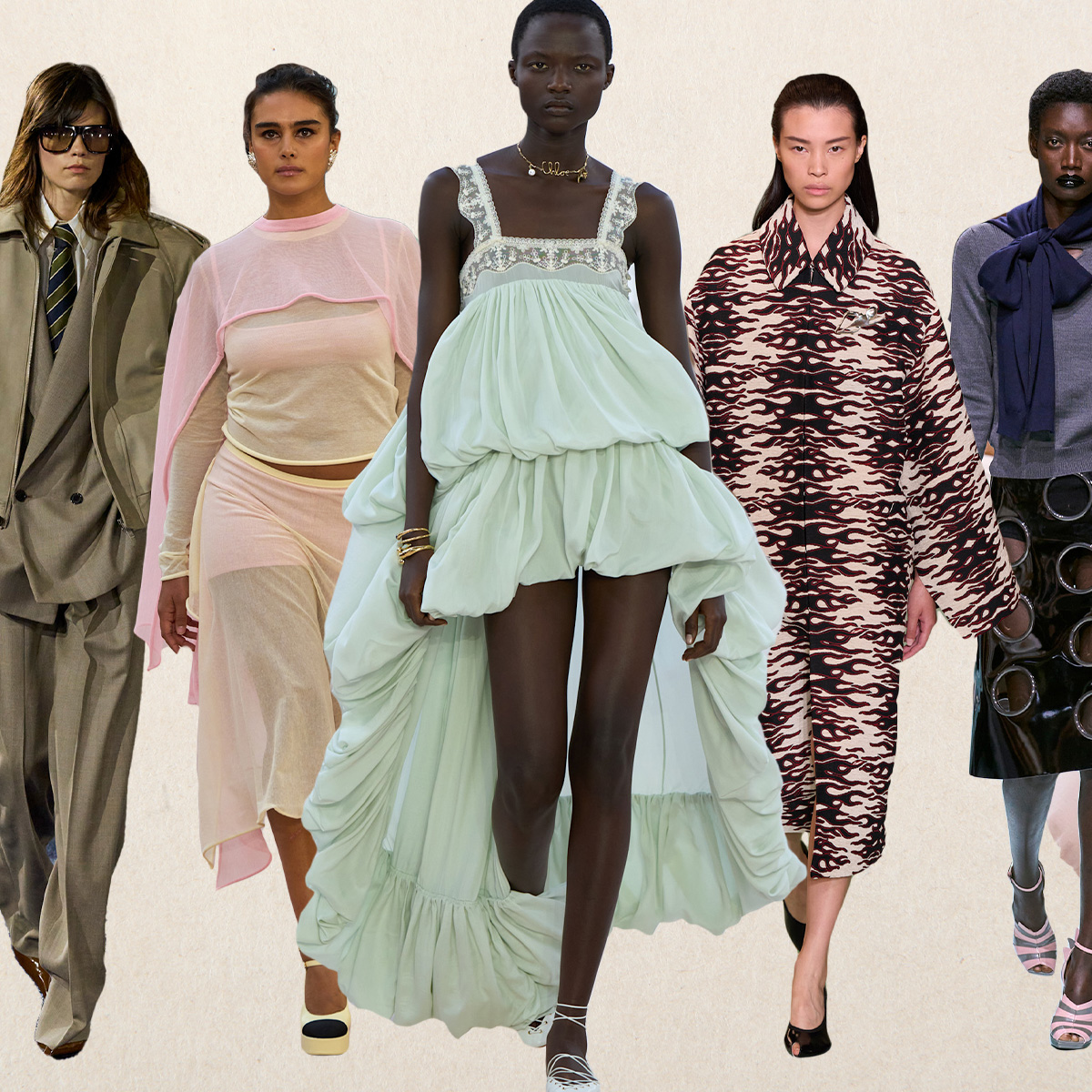 9 Trends Set to Define Spring 2025 Fashion
9 Trends Set to Define Spring 2025 FashionWhat to know from the spring/summer 2025 runways.
By Eliza Huber
-
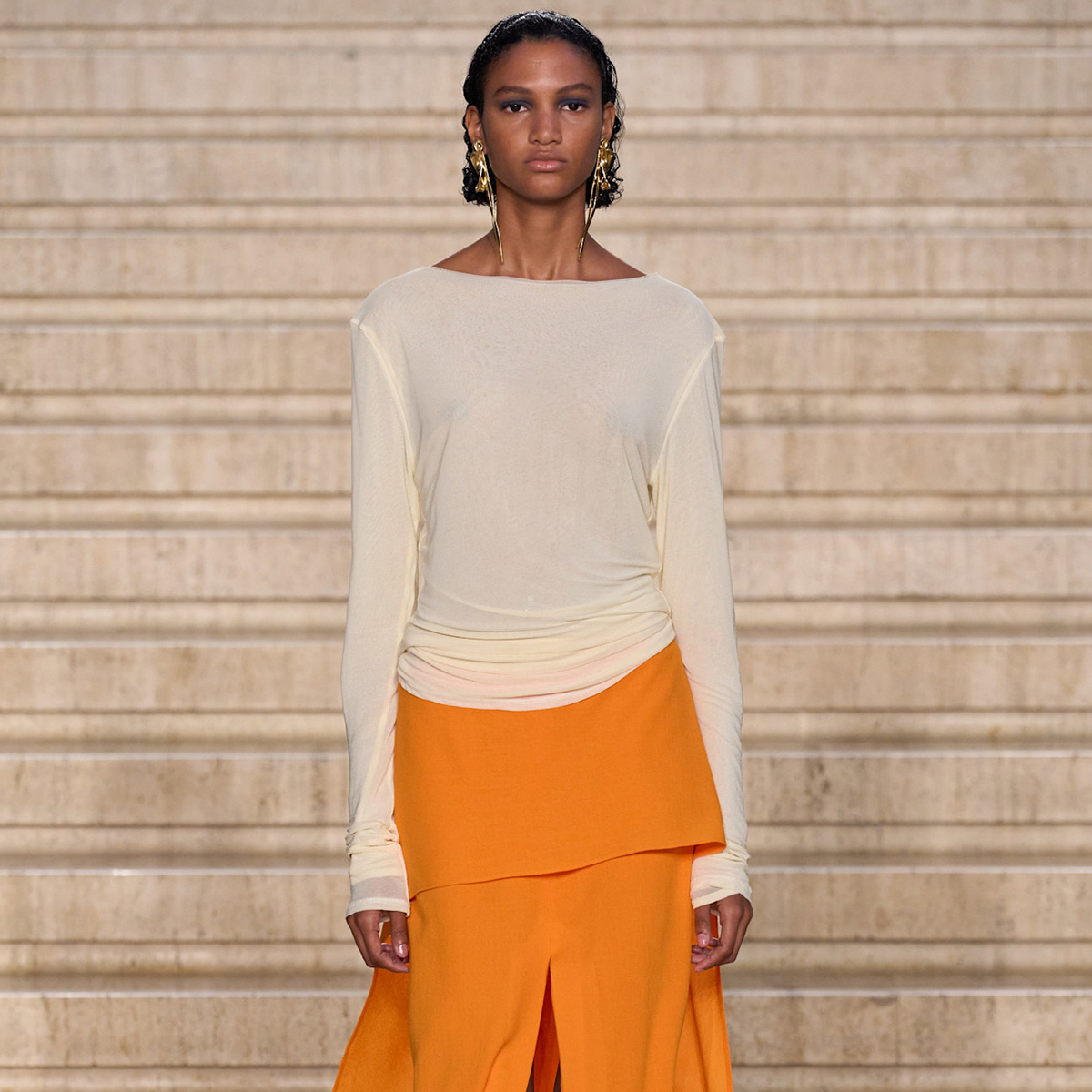 London Has Spoken: 7 Fashion Trends That Are Set to Be Big in 2025
London Has Spoken: 7 Fashion Trends That Are Set to Be Big in 2025They're destined to reach ubiquity come spring.
By Nikki Chwatt
-
 The Burberry S/S 25 Show Embraces Artful Embellishment and Utilitarian Workwear
The Burberry S/S 25 Show Embraces Artful Embellishment and Utilitarian WorkwearDaniel Lee is at it again.
By Nikki Chwatt
-
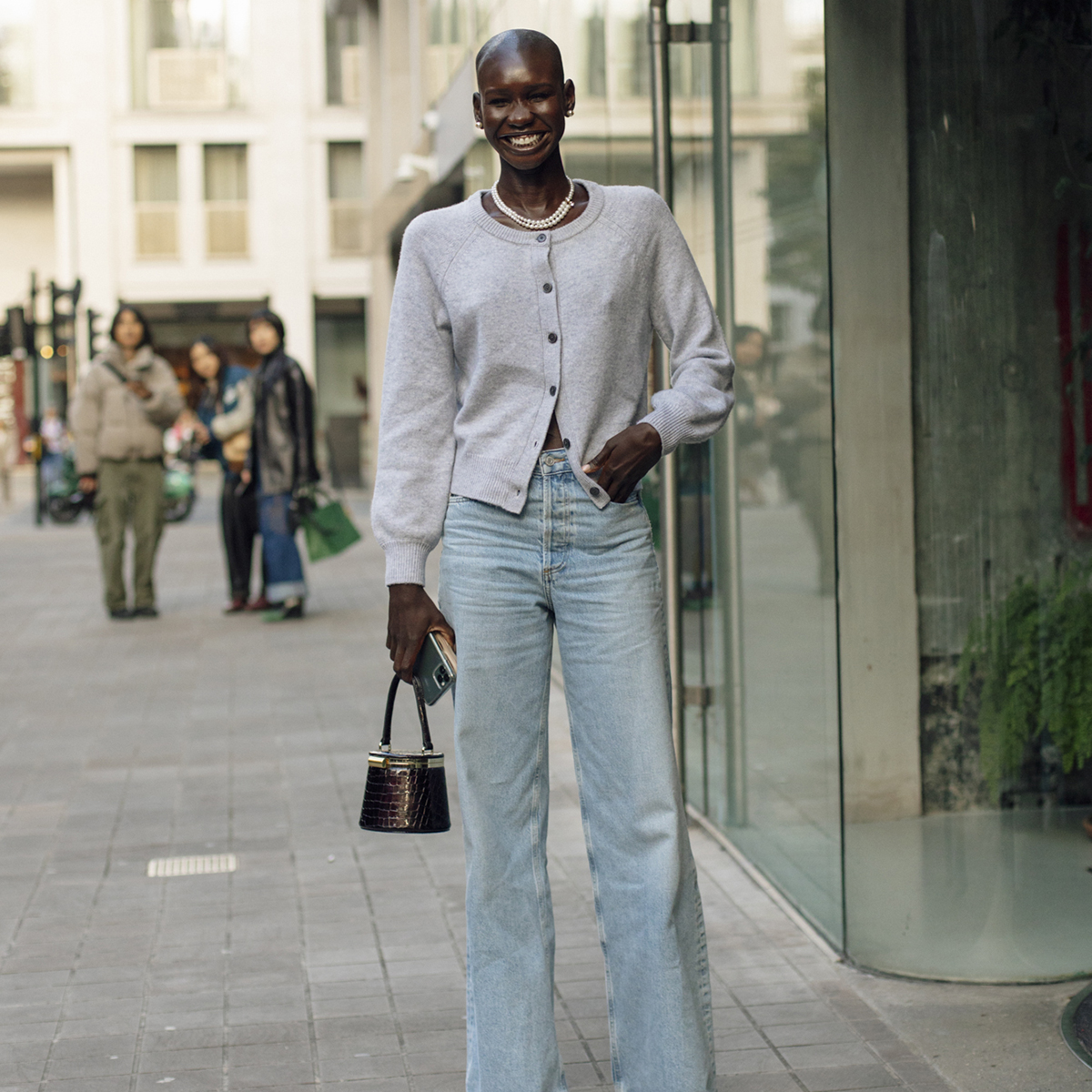 12 Fall Outfit Ideas Straight From the Streets of London Fashion Week
12 Fall Outfit Ideas Straight From the Streets of London Fashion WeekWe can't wait to wear these.
By Allyson Payer
-
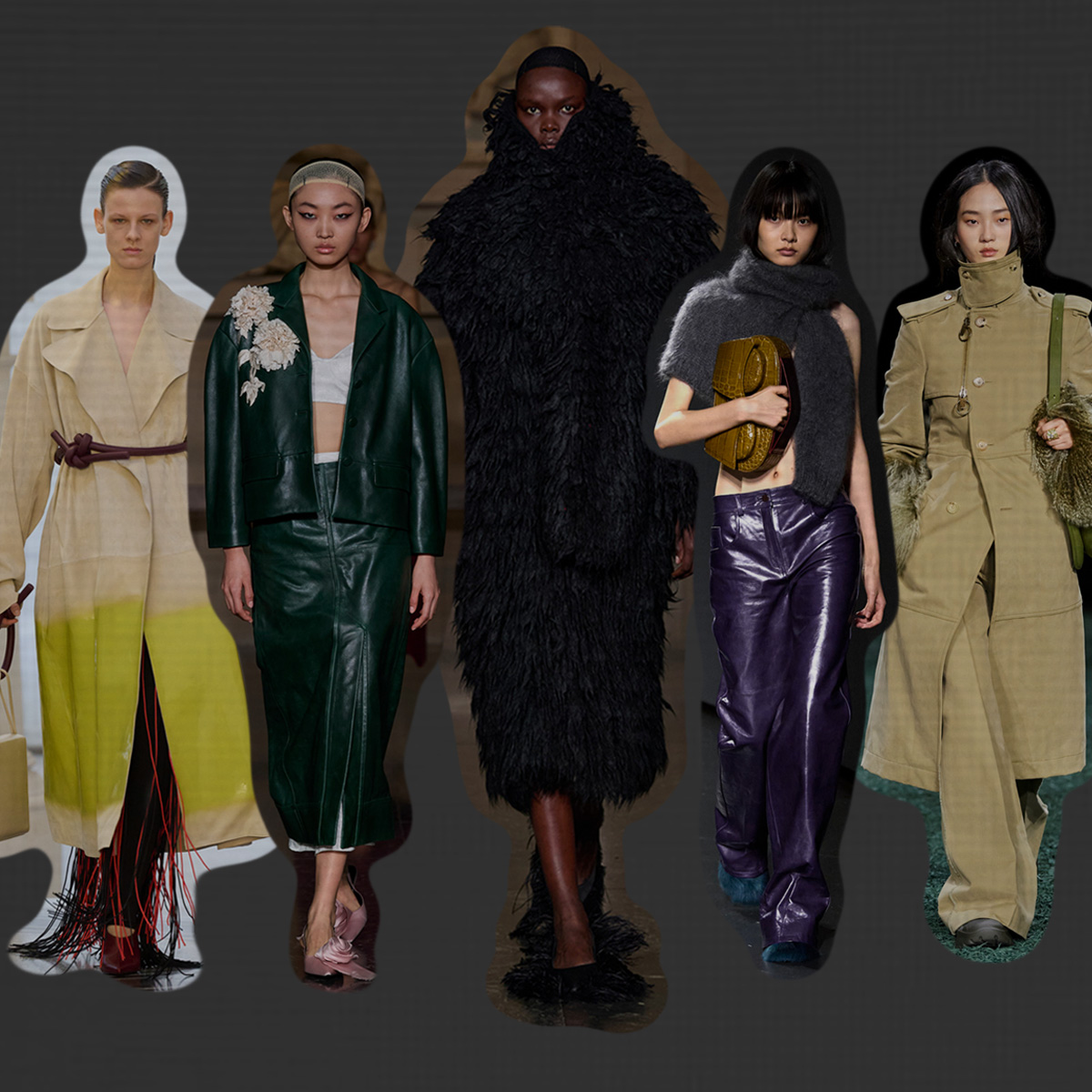 London Is Calling—6 Trends You'll Want to Pick Up On Before Next Fall
London Is Calling—6 Trends You'll Want to Pick Up On Before Next FallRing, ring.
By Jasmine Fox-Suliaman
